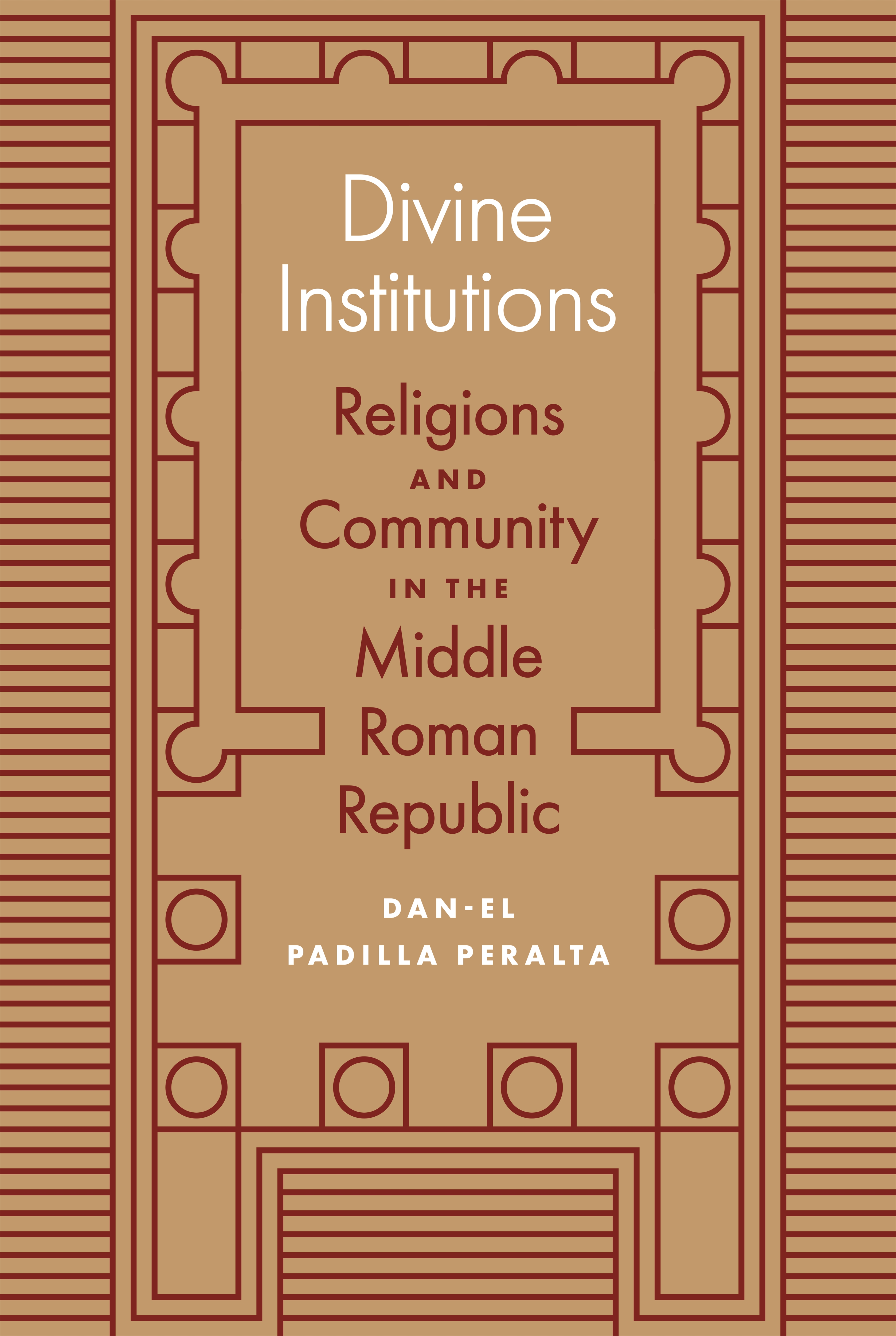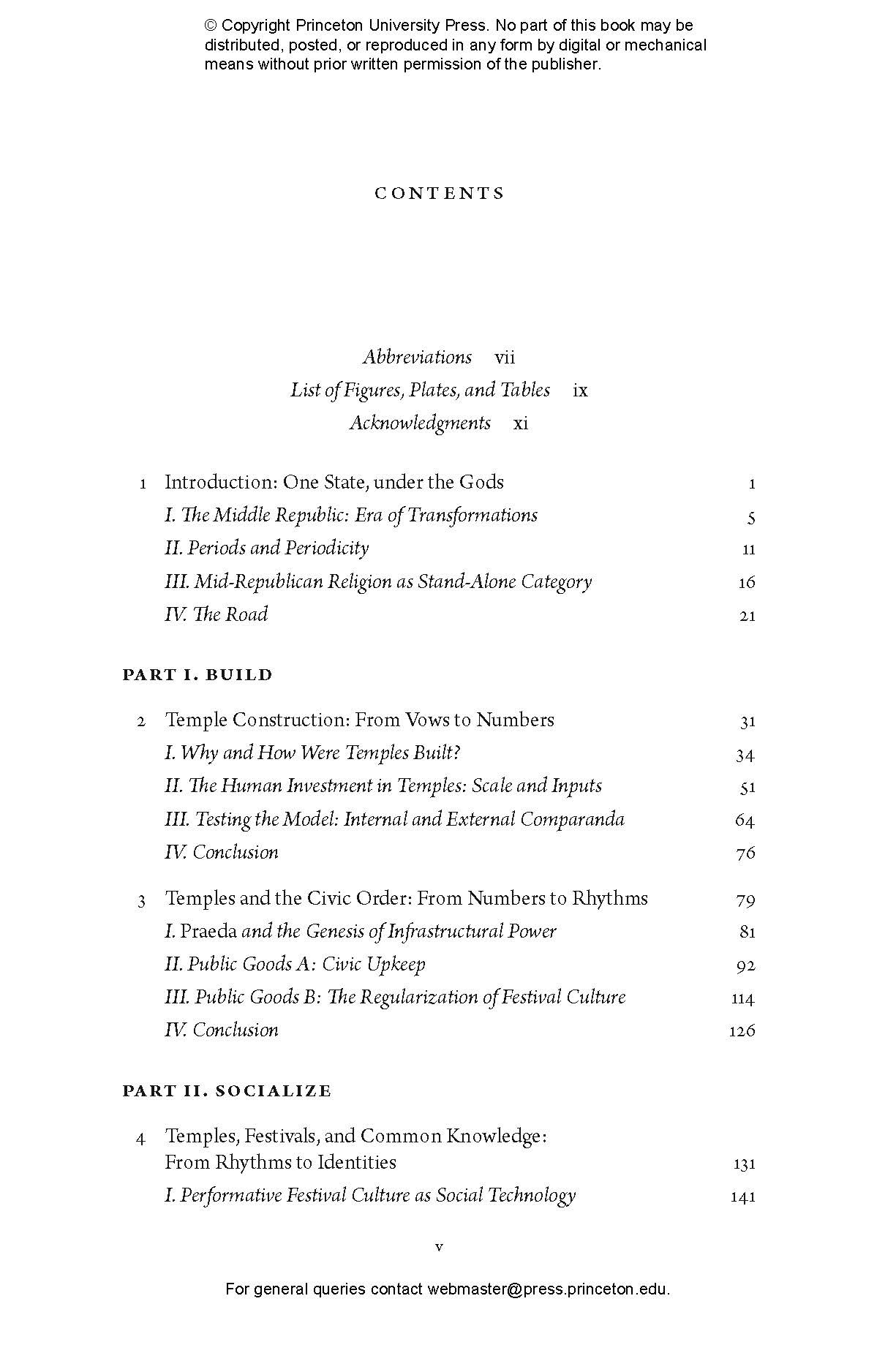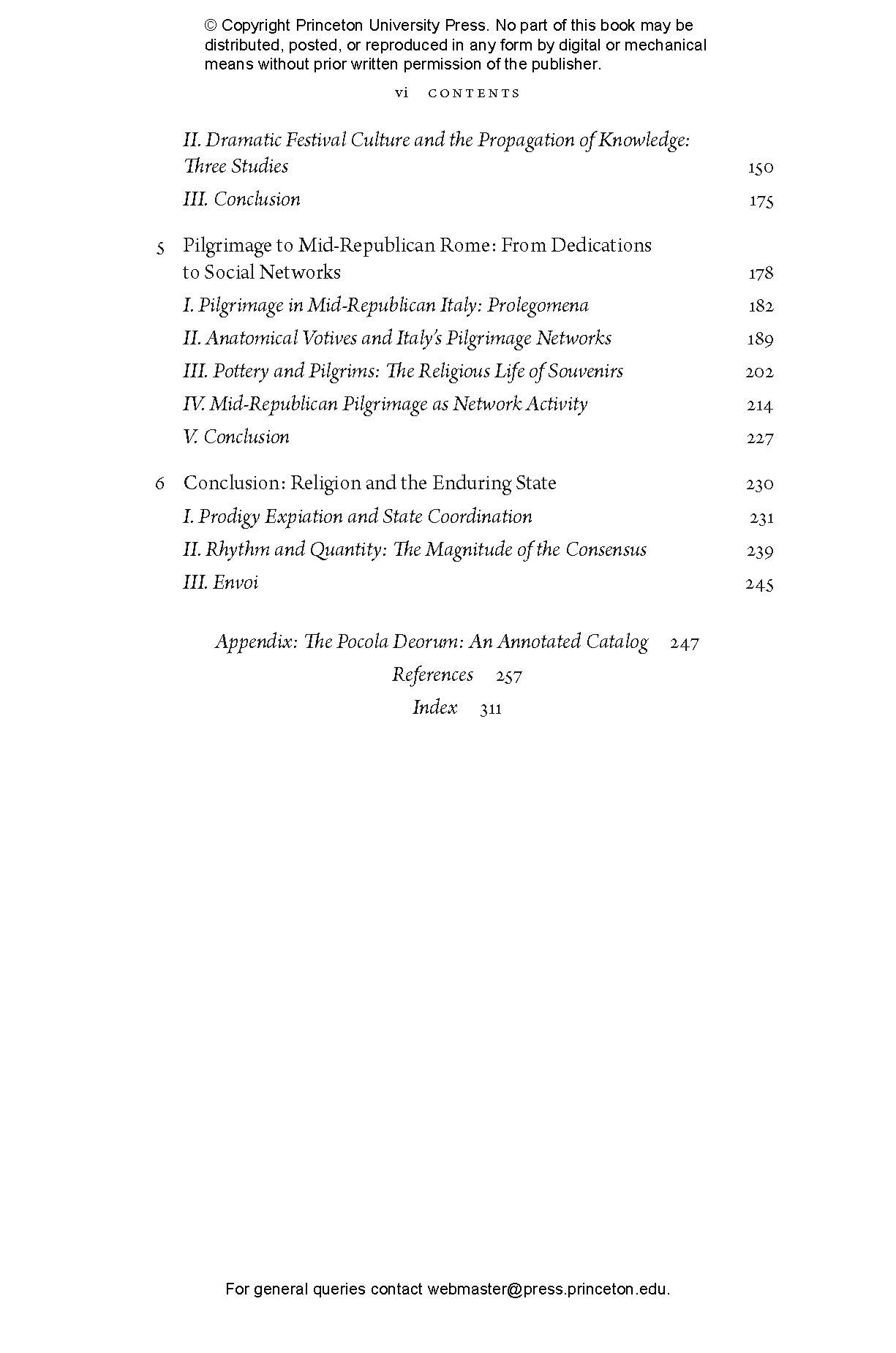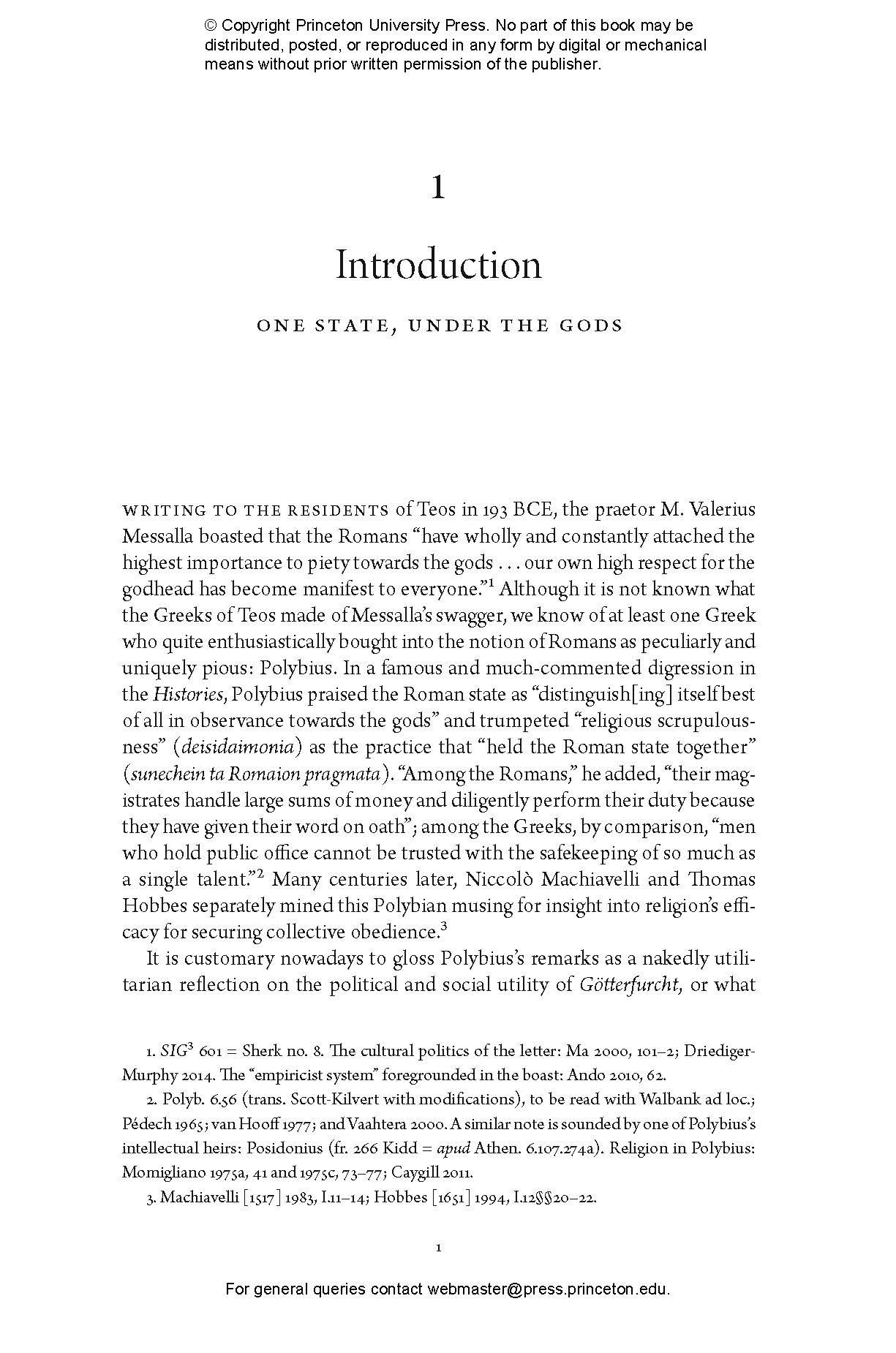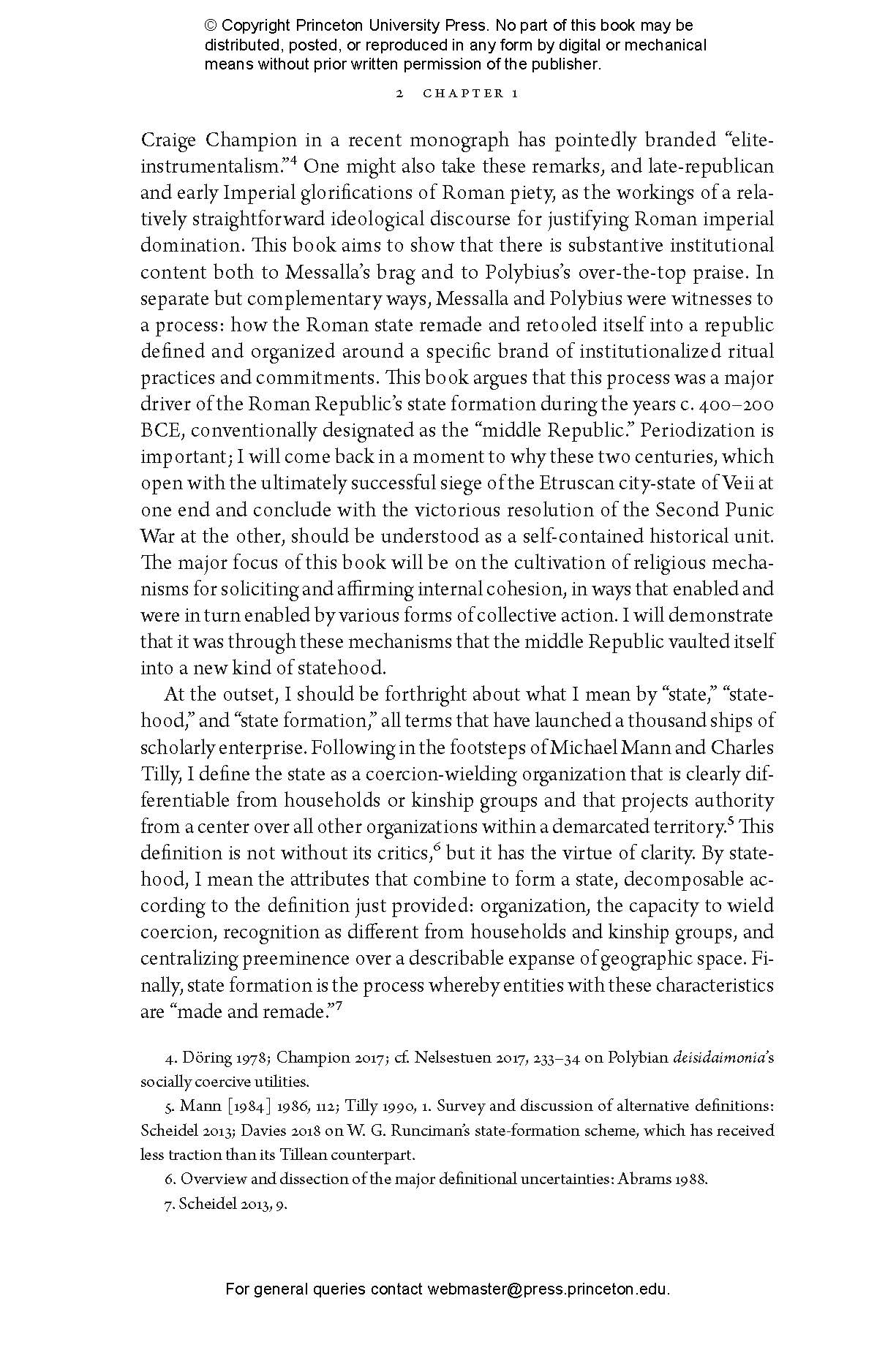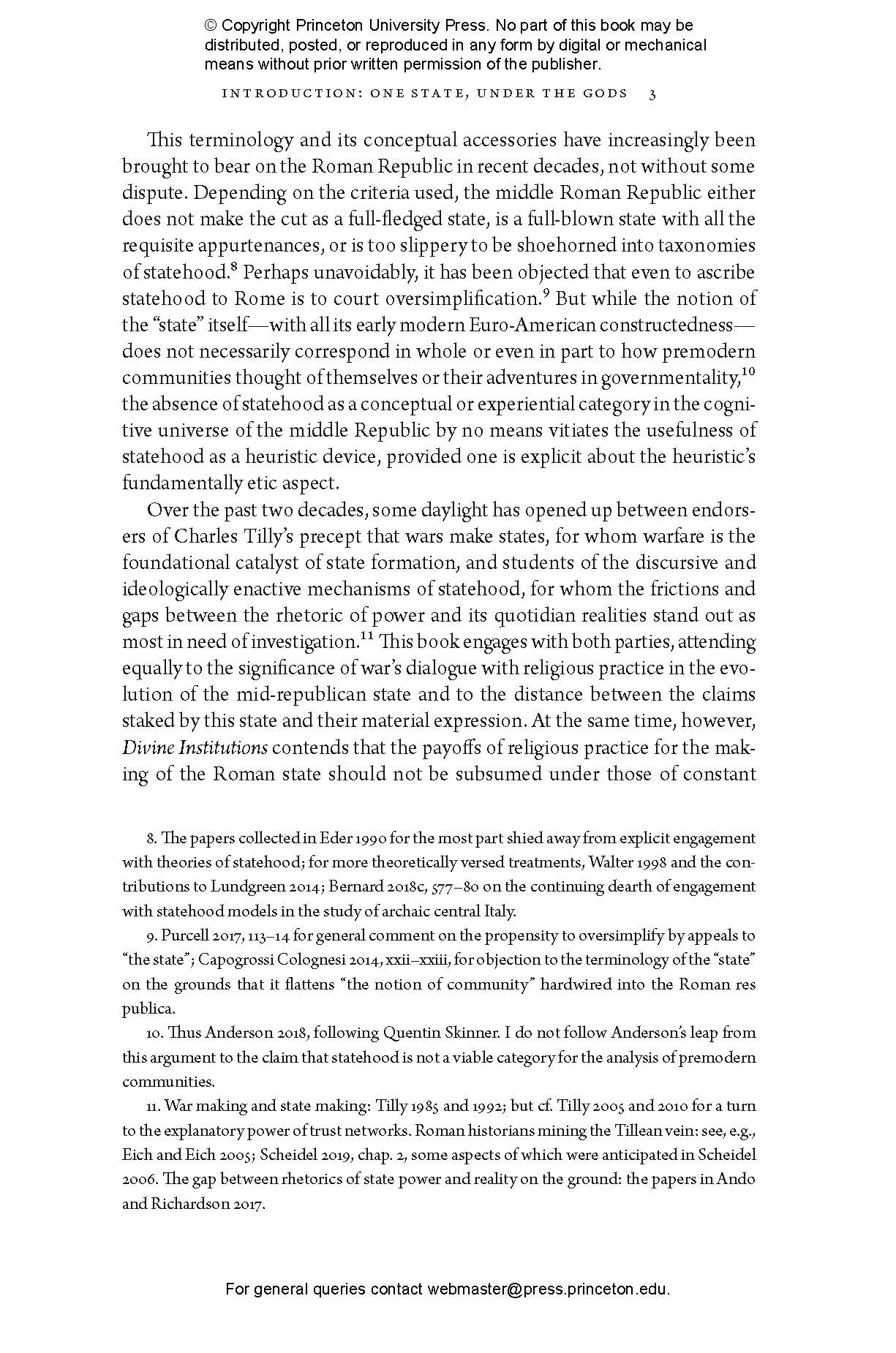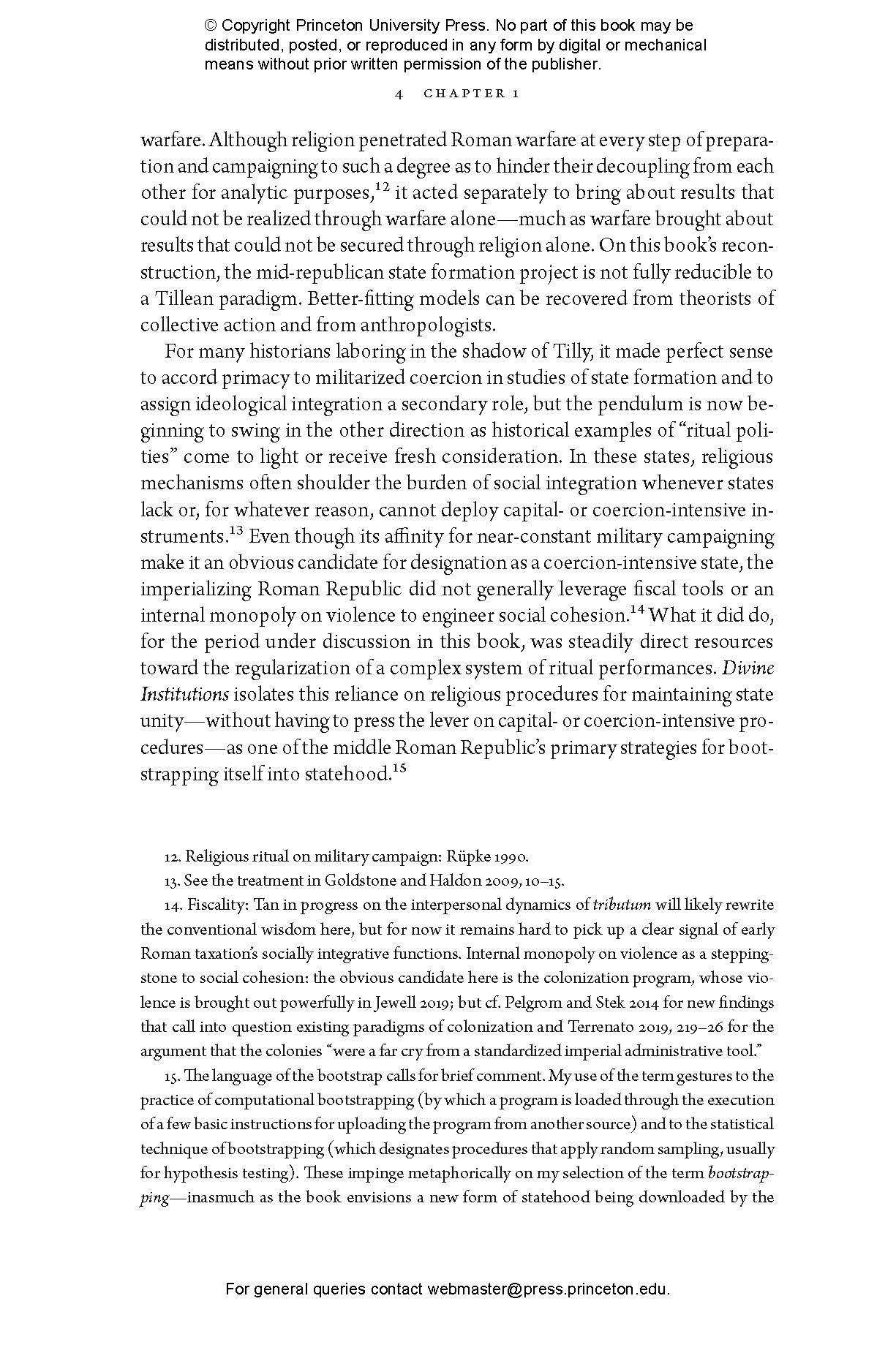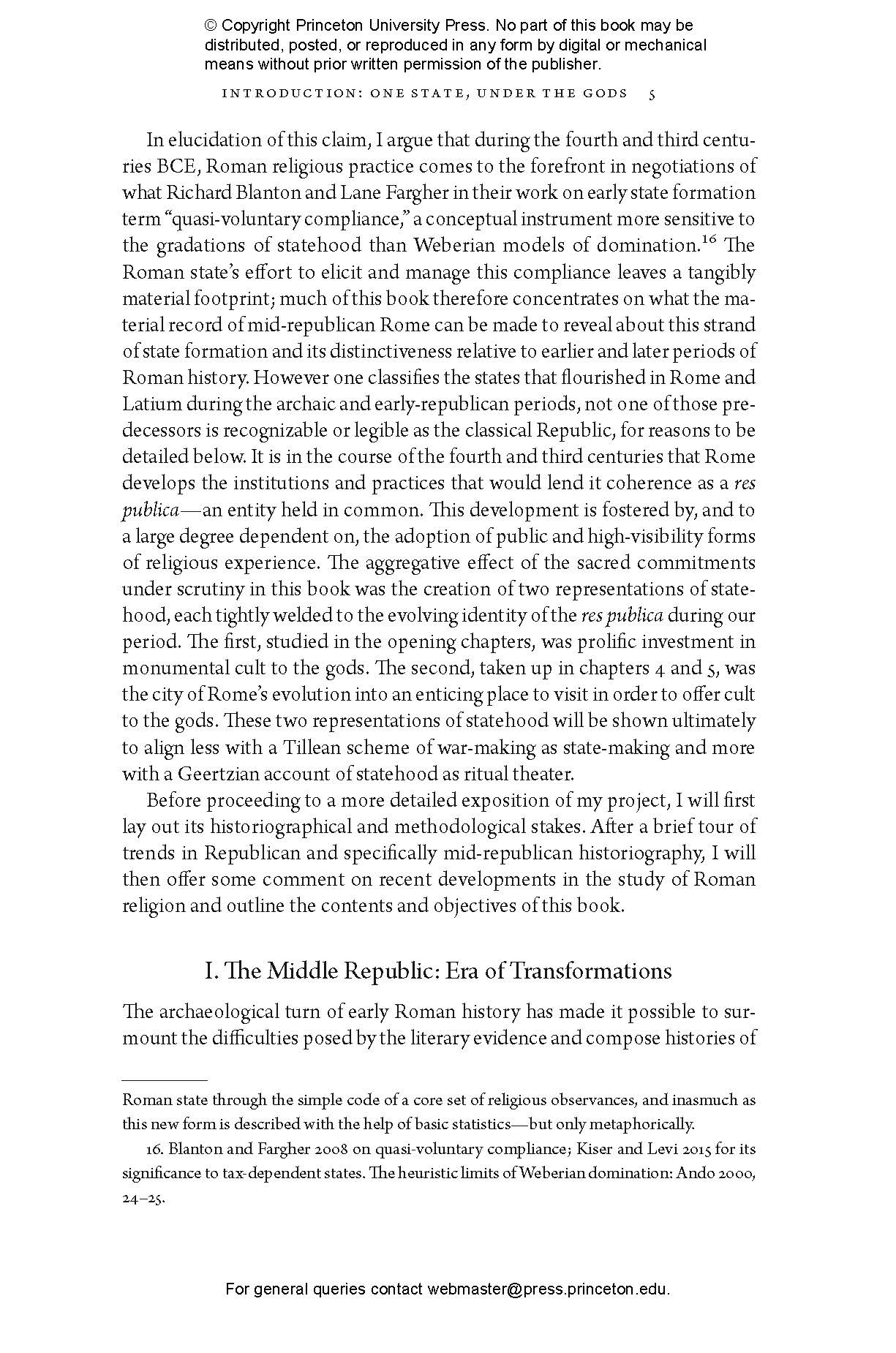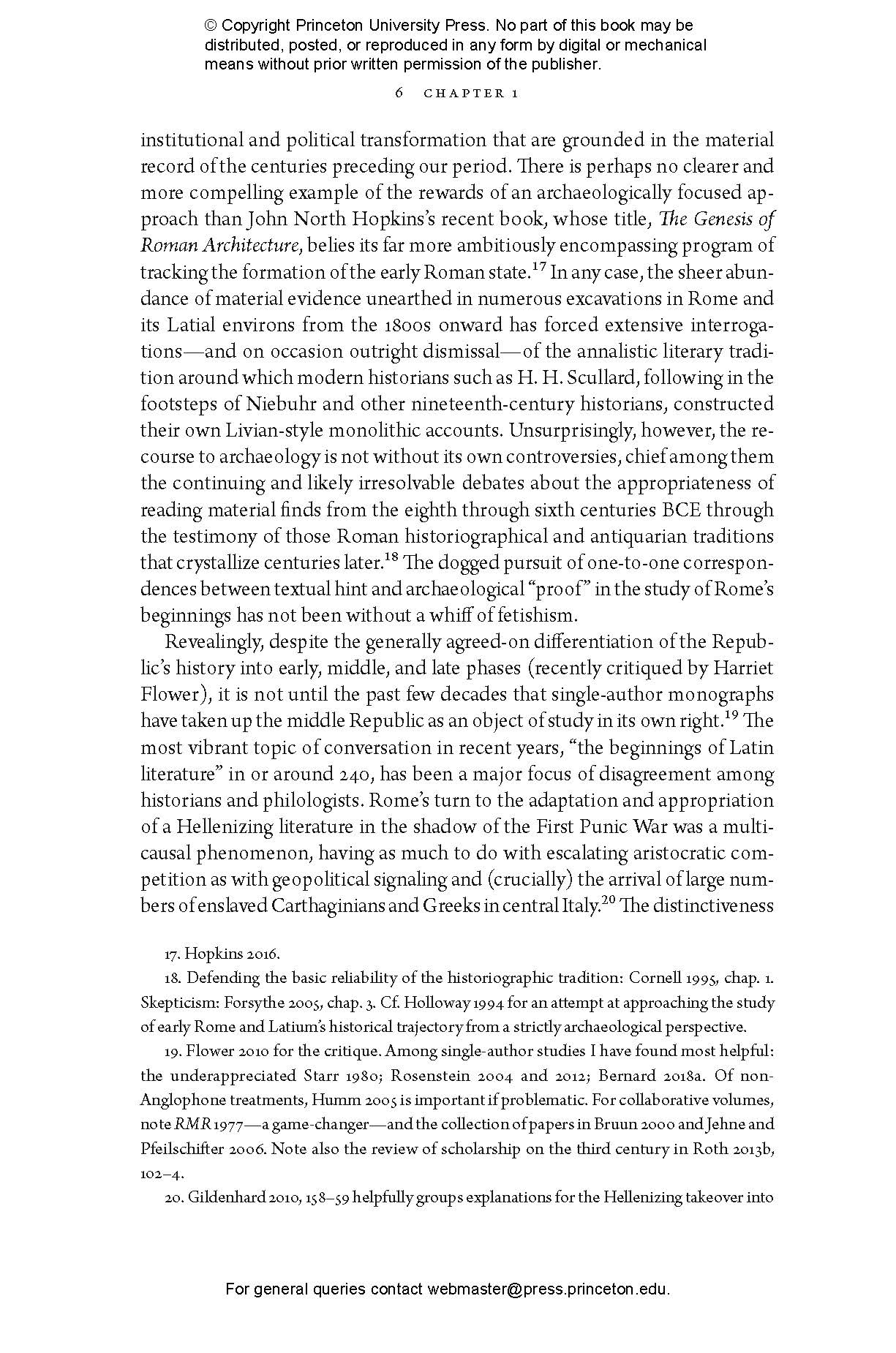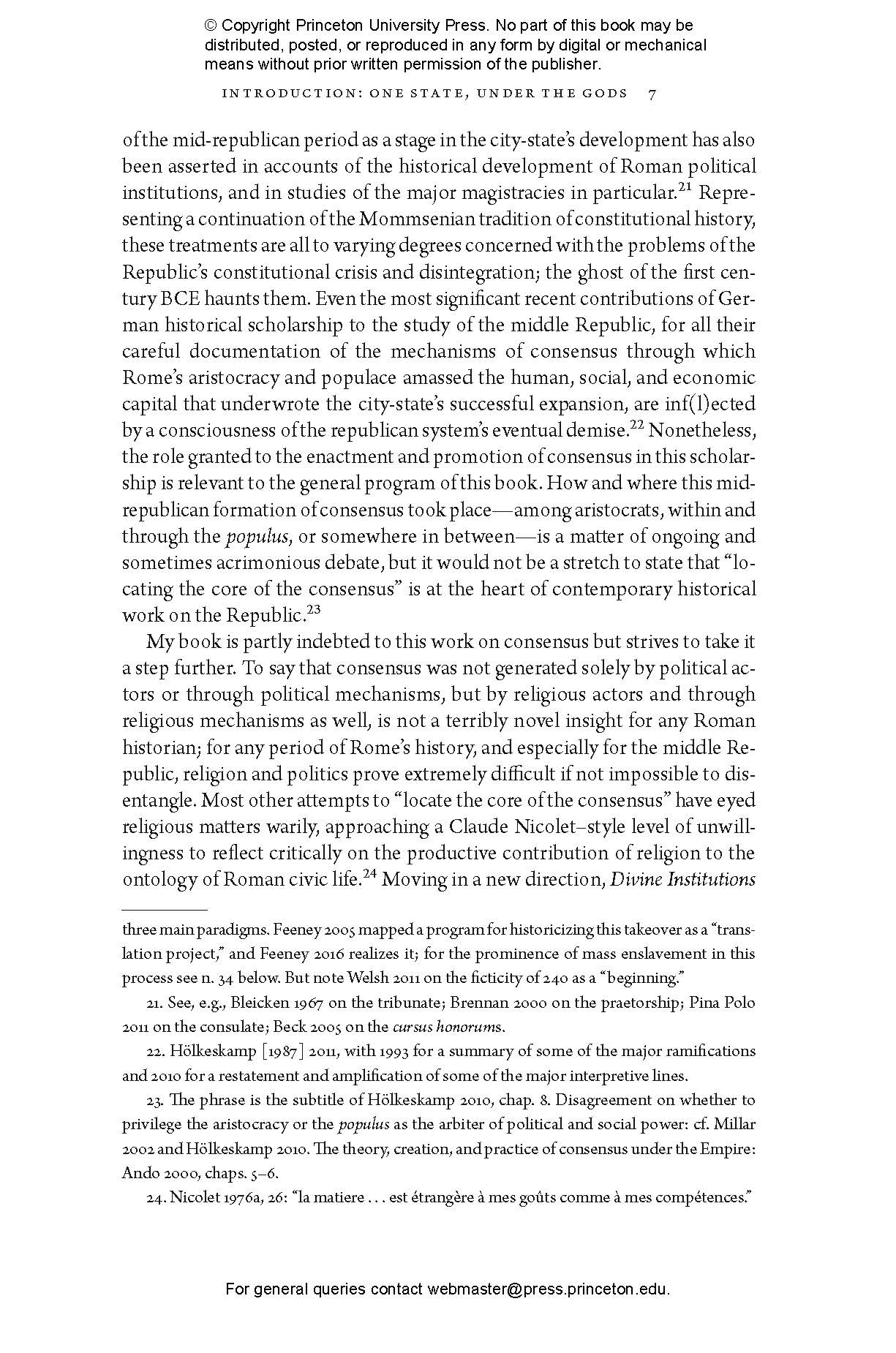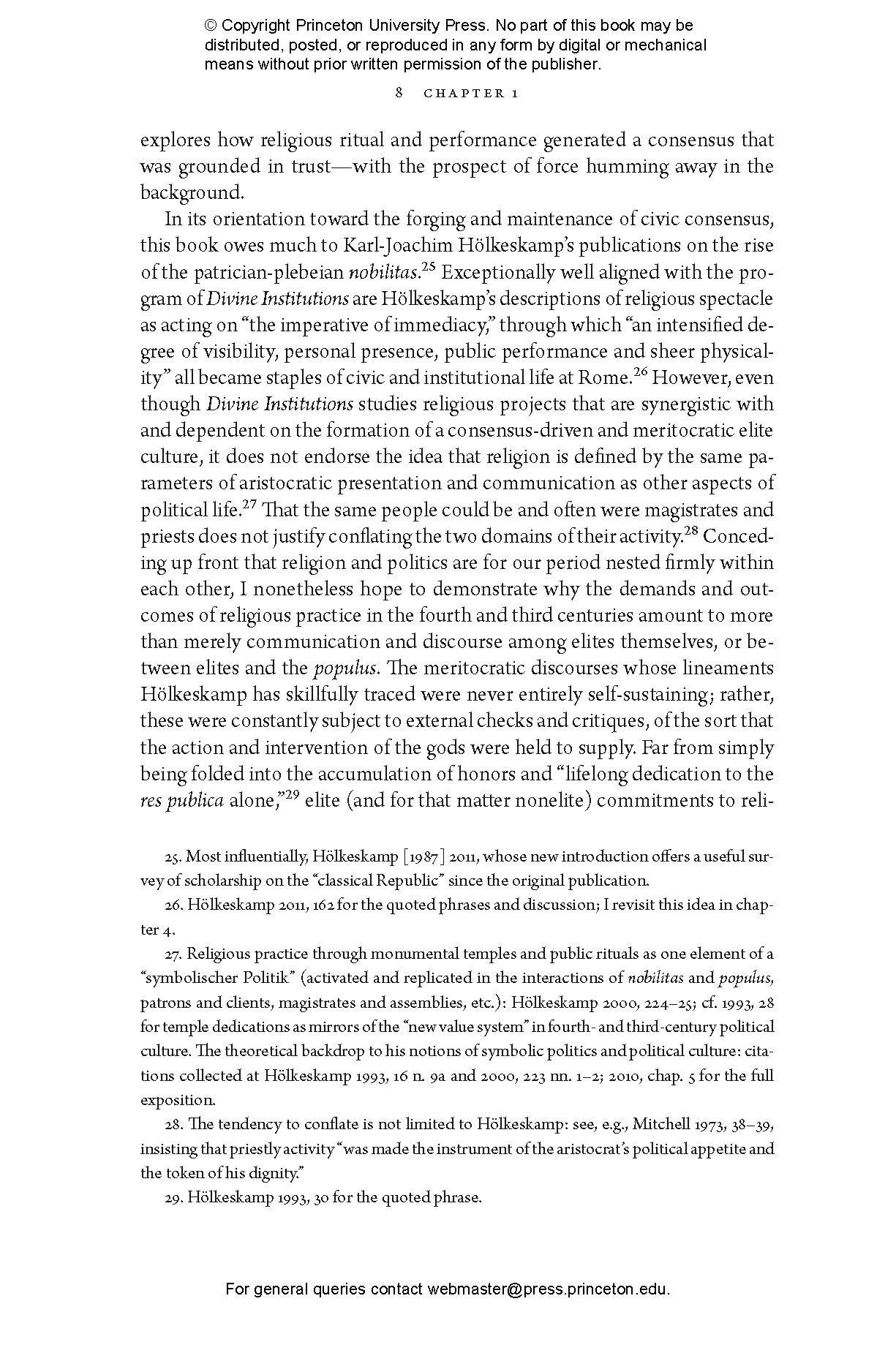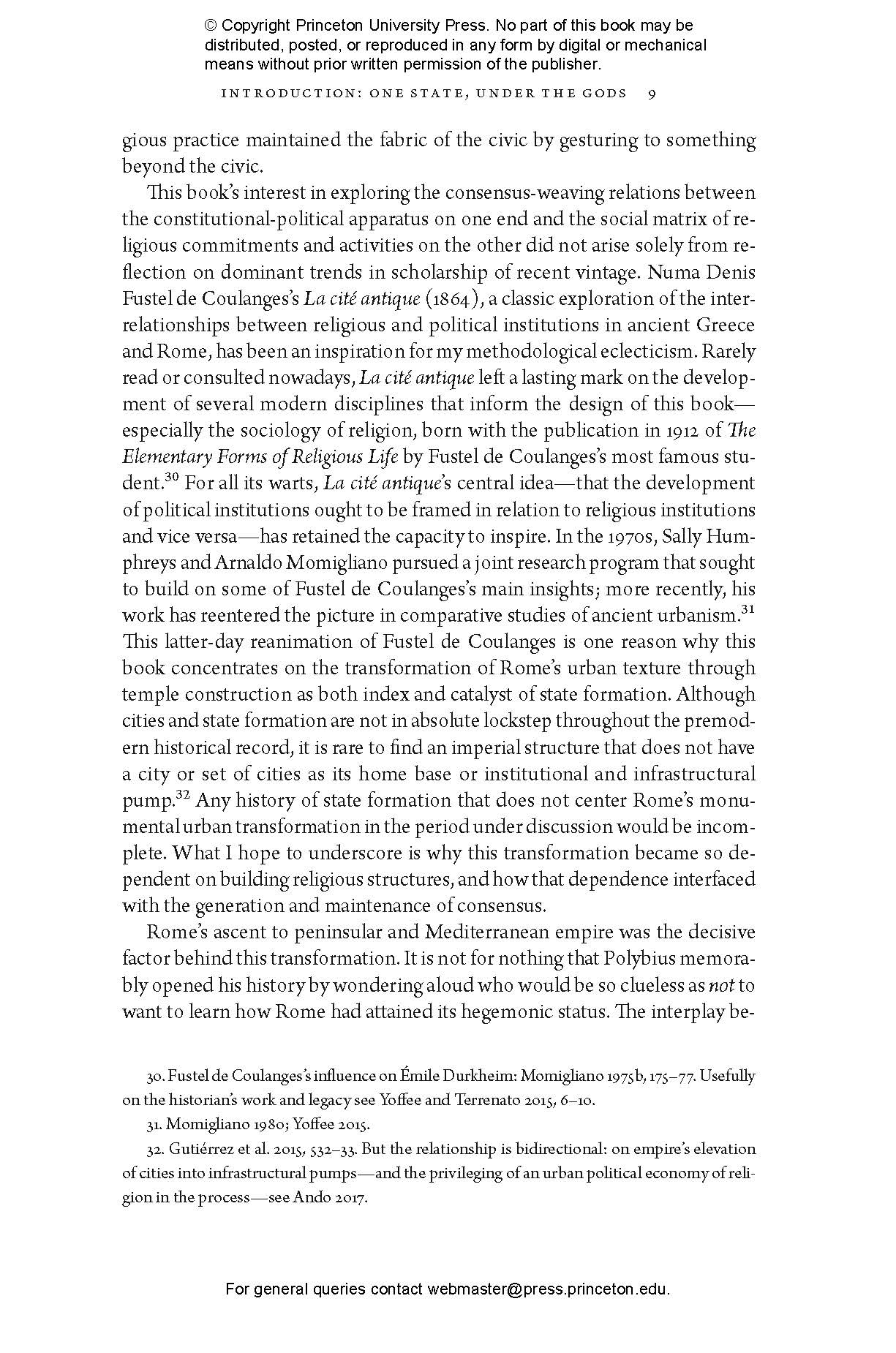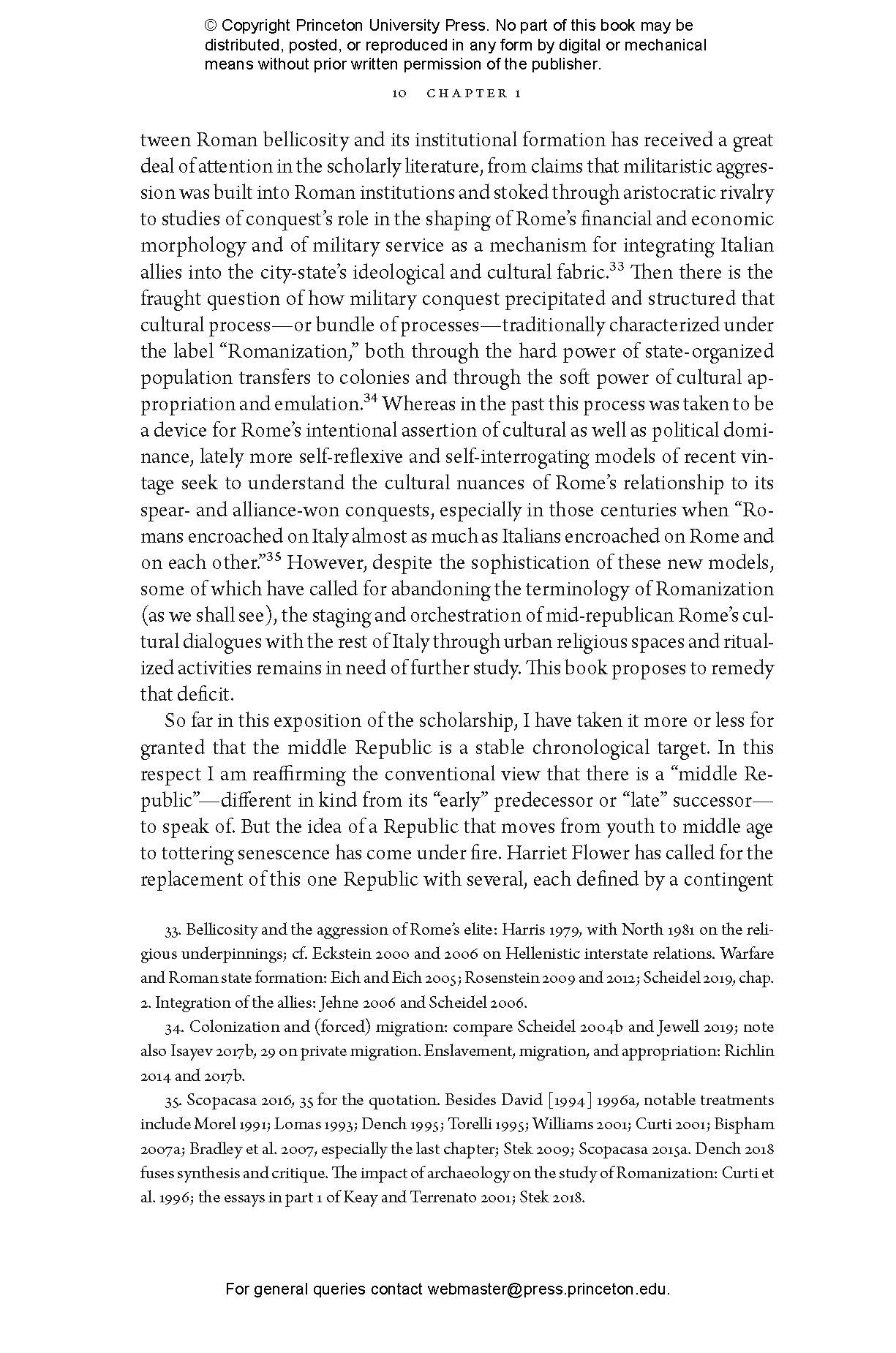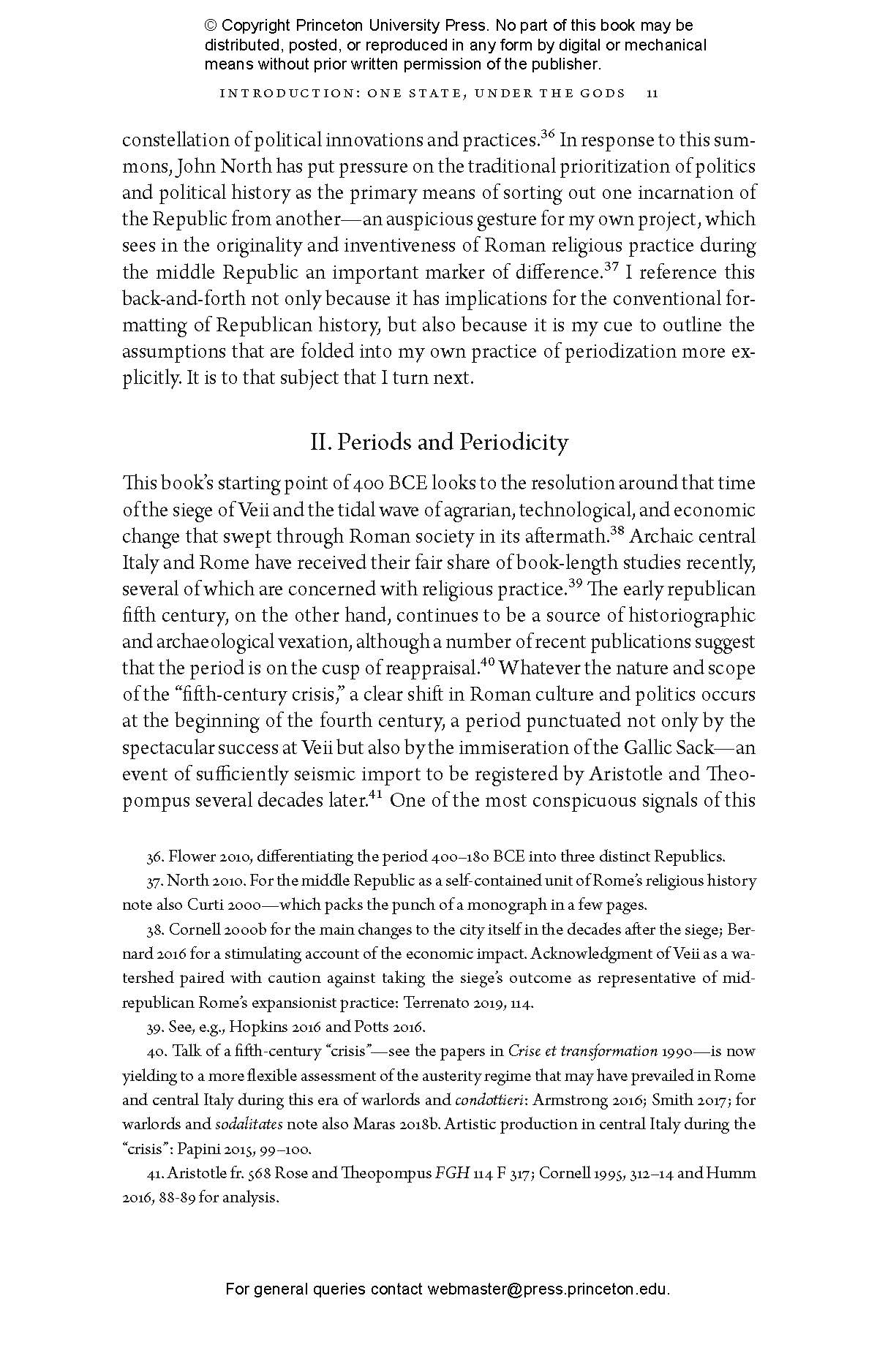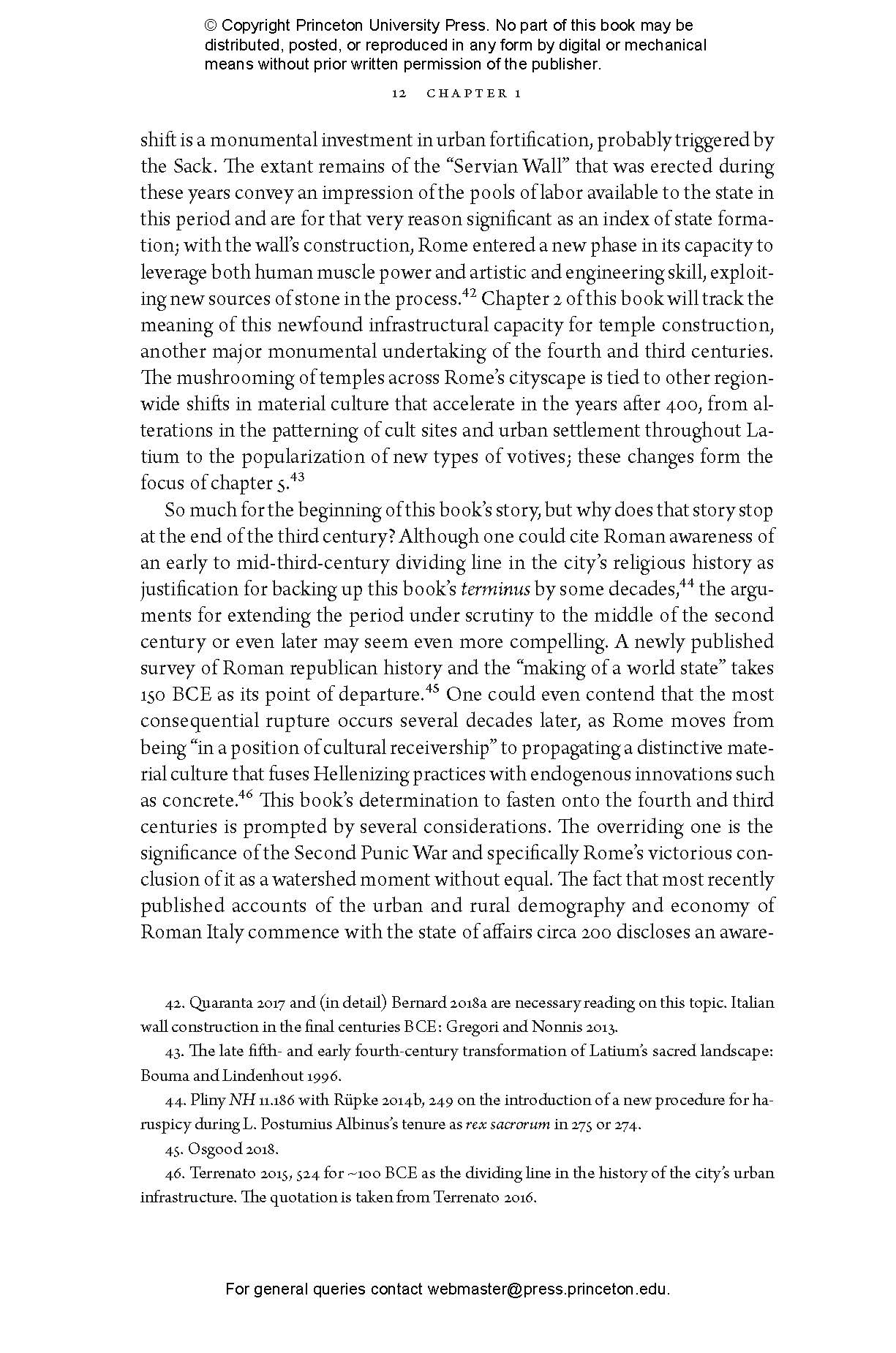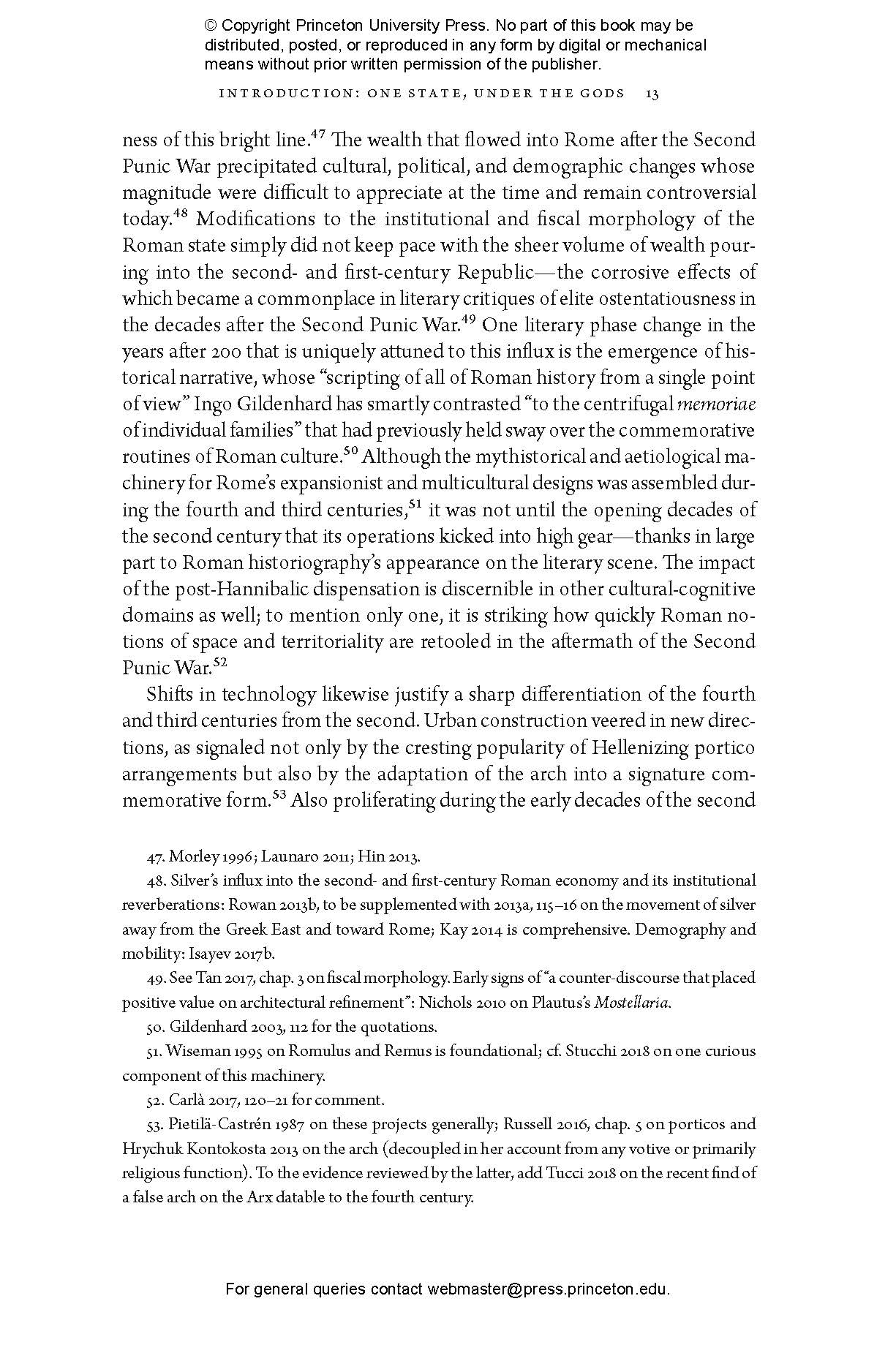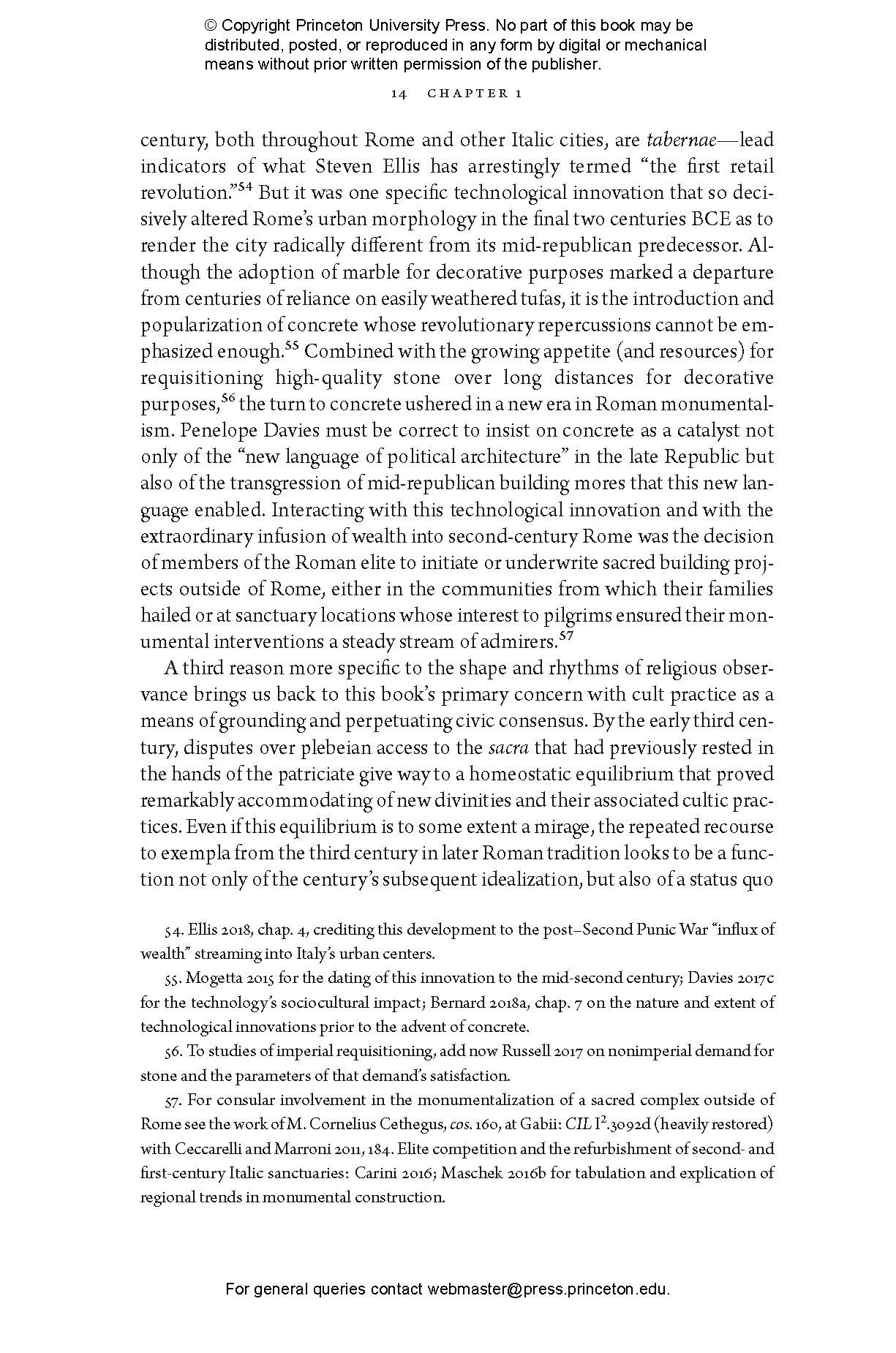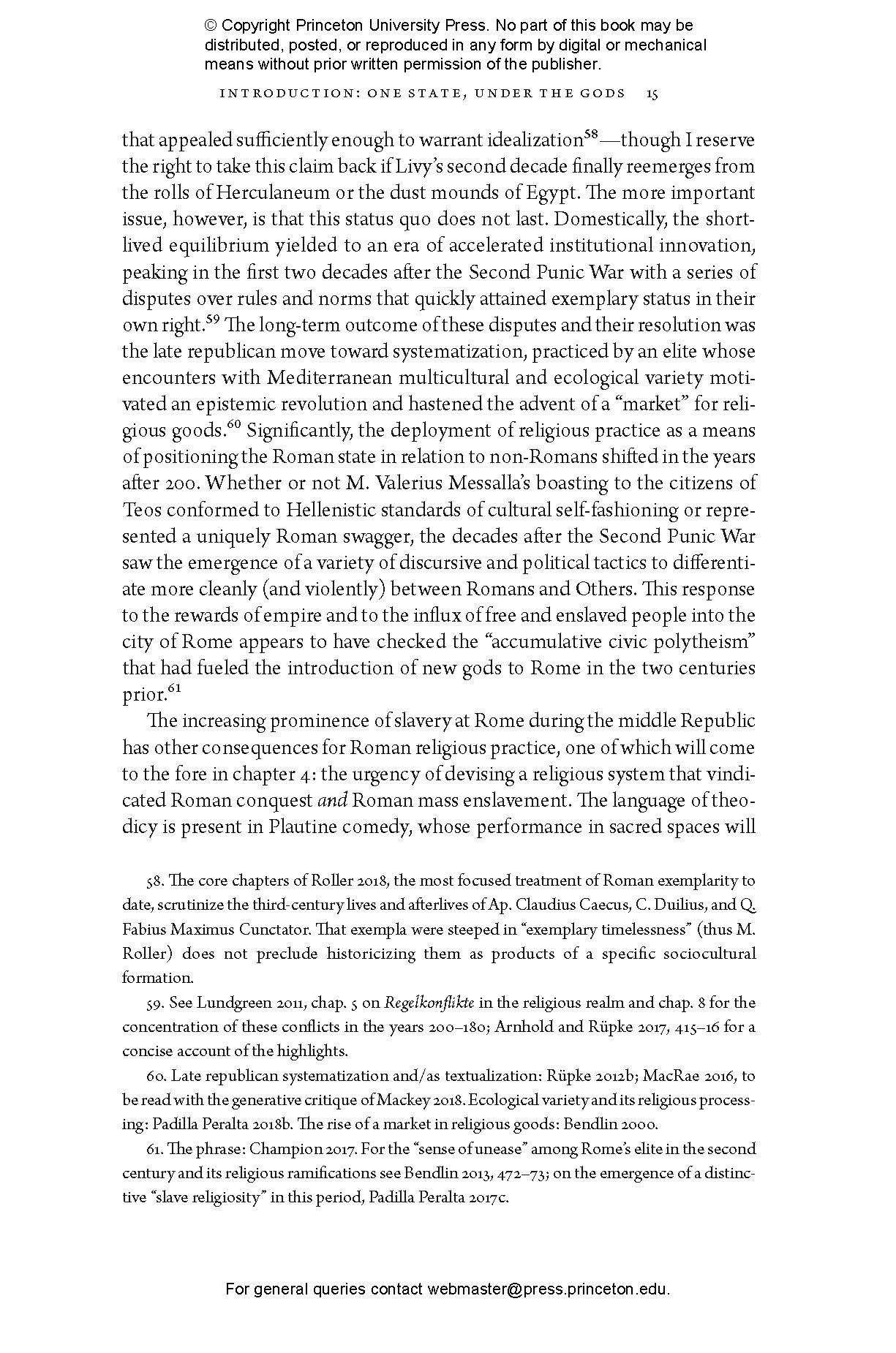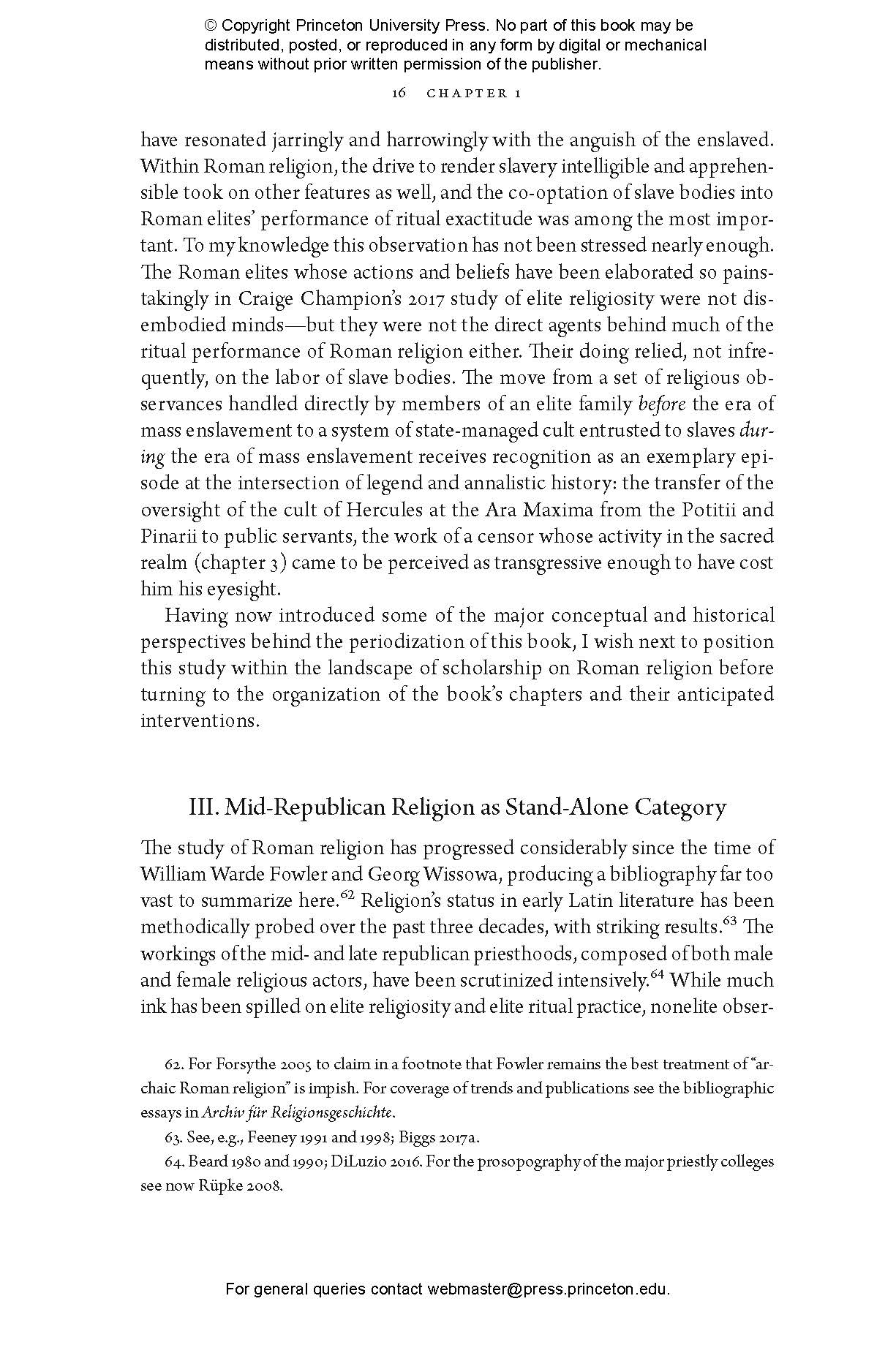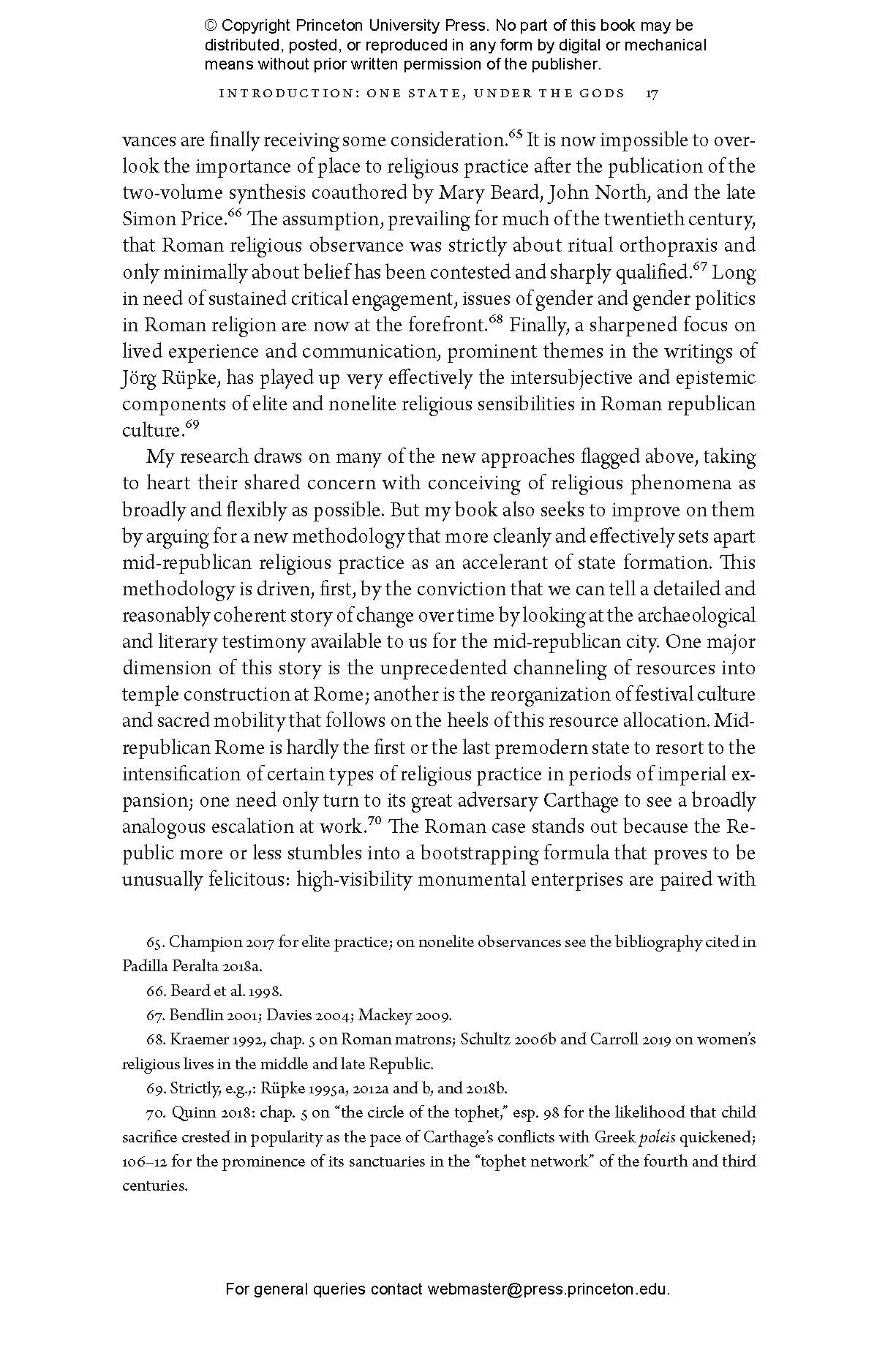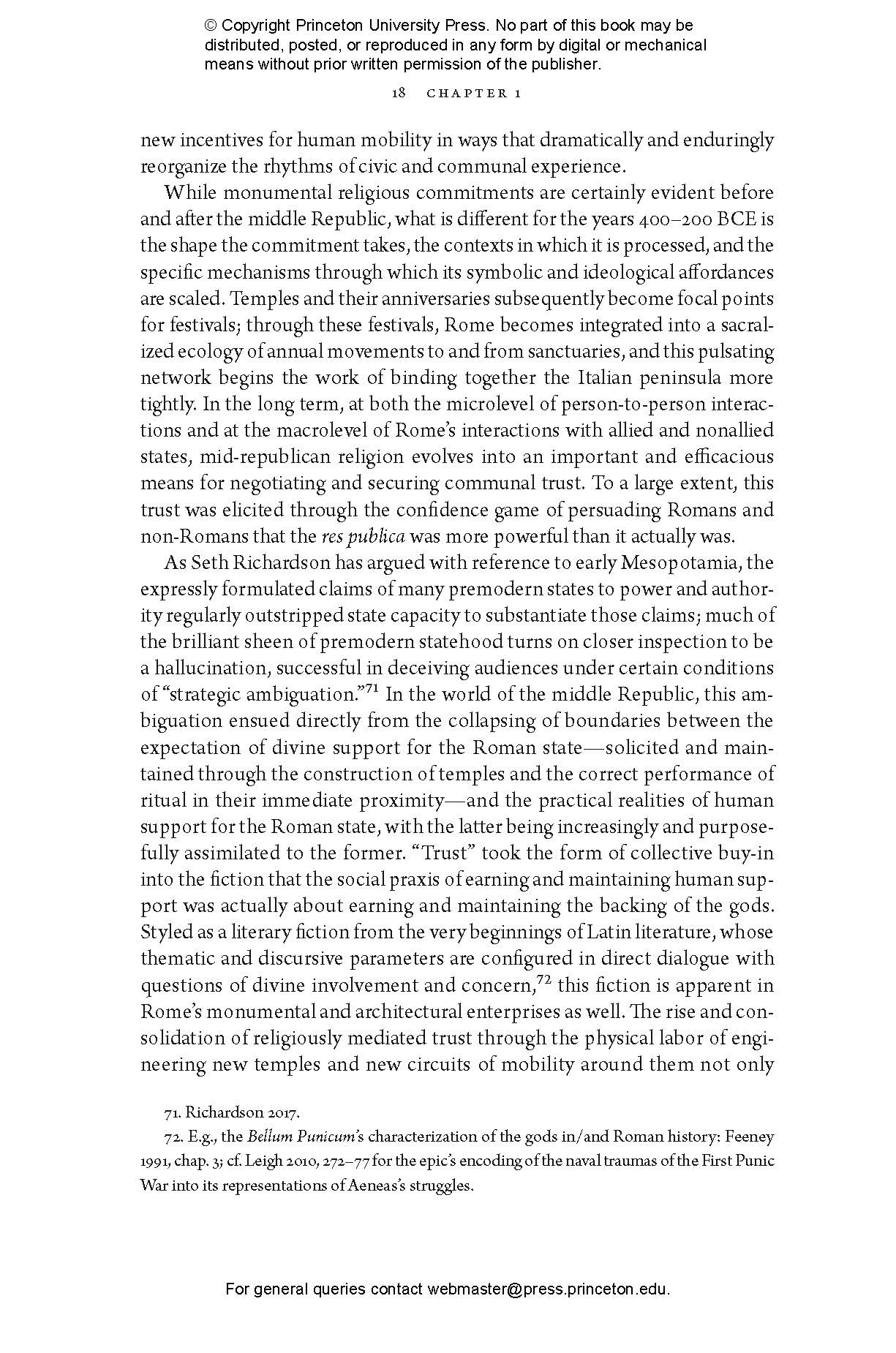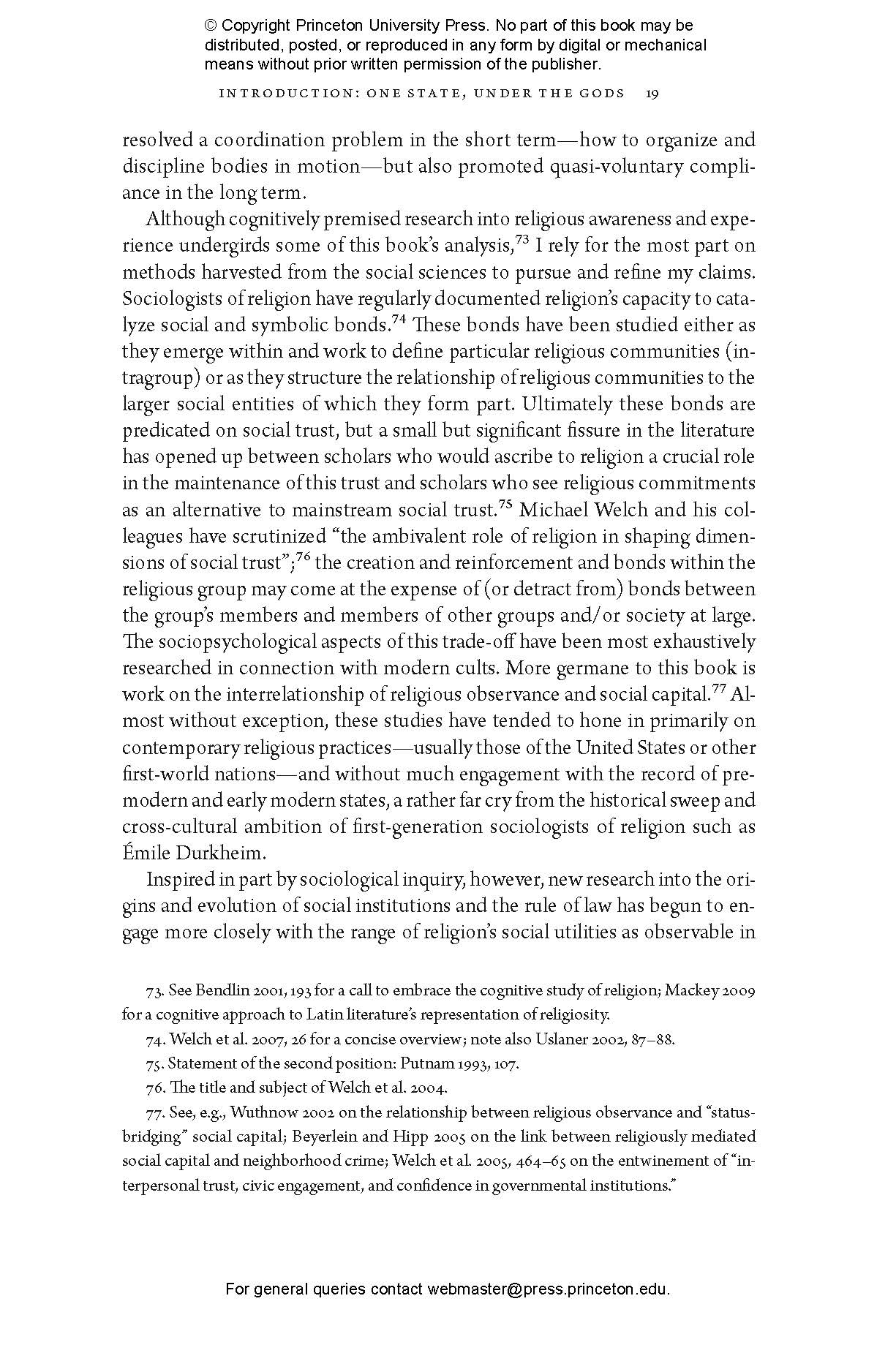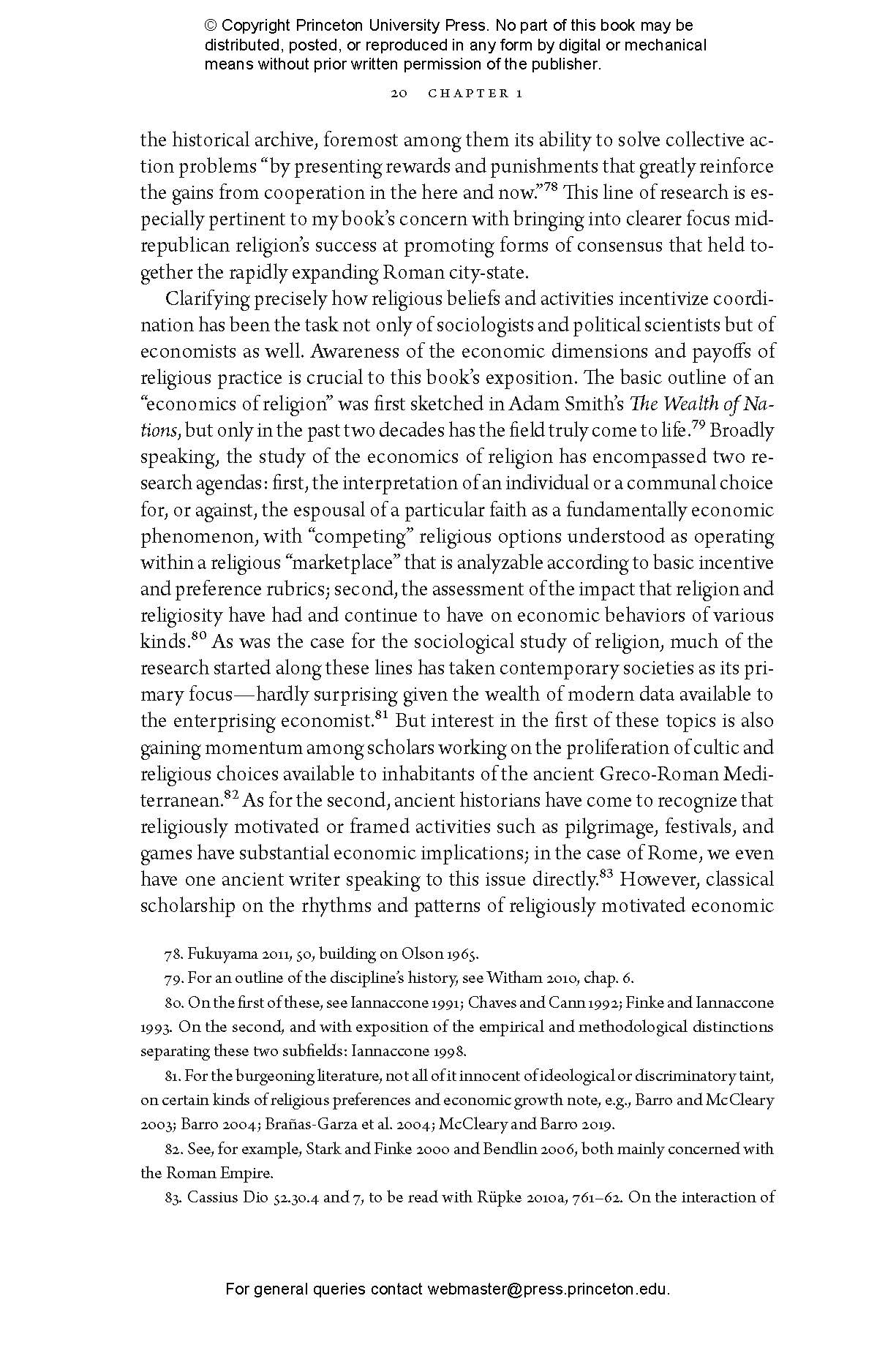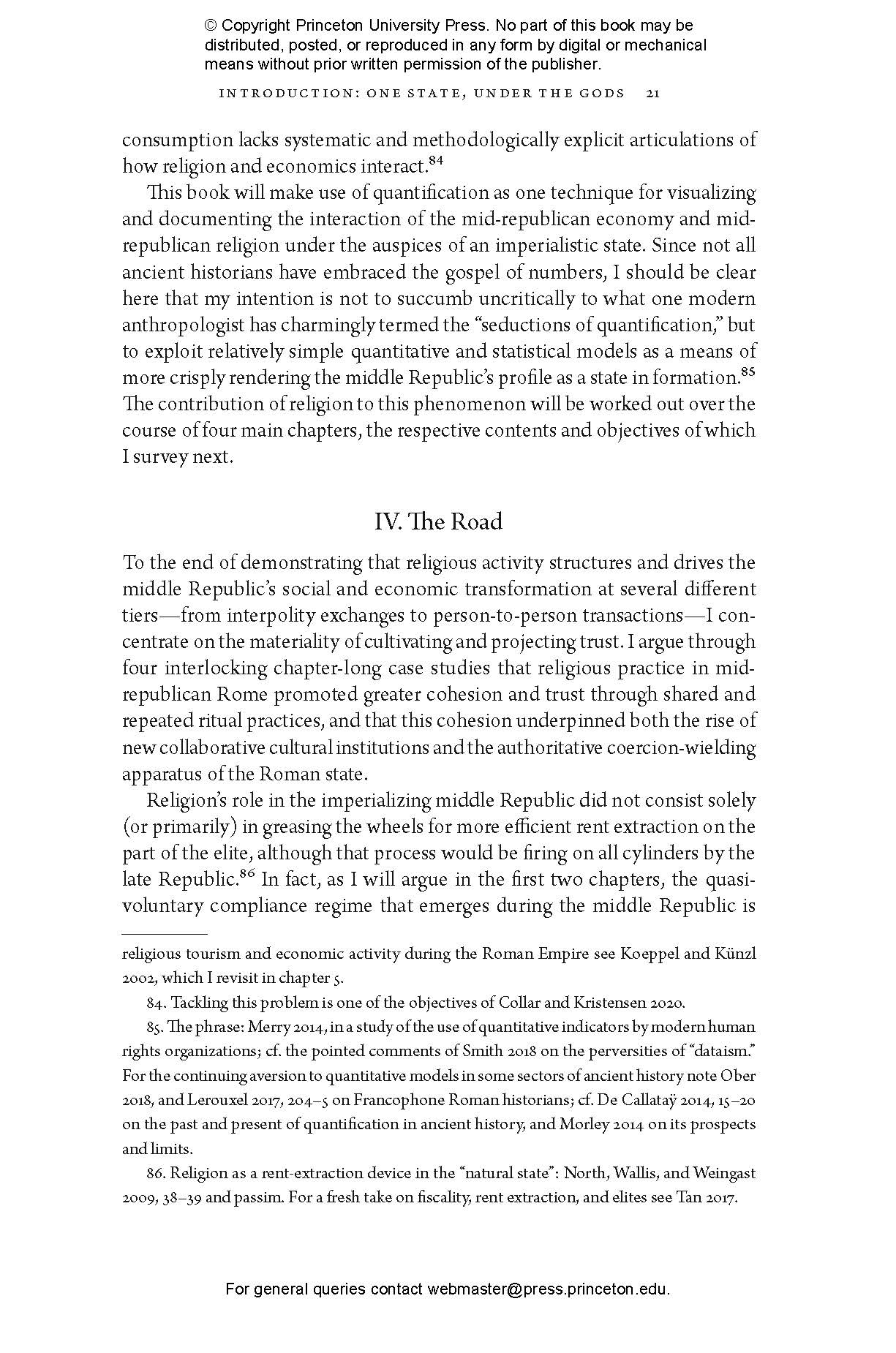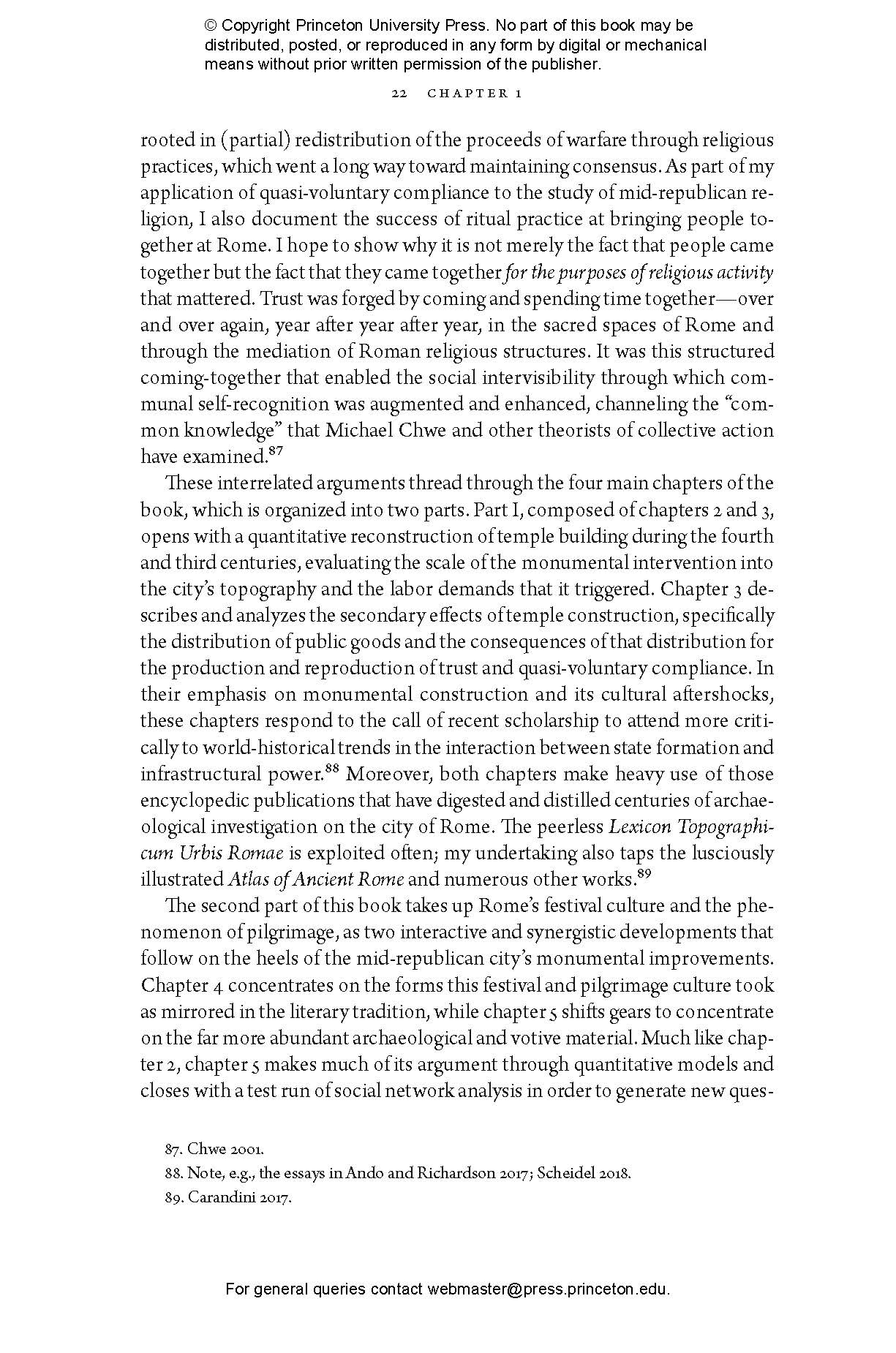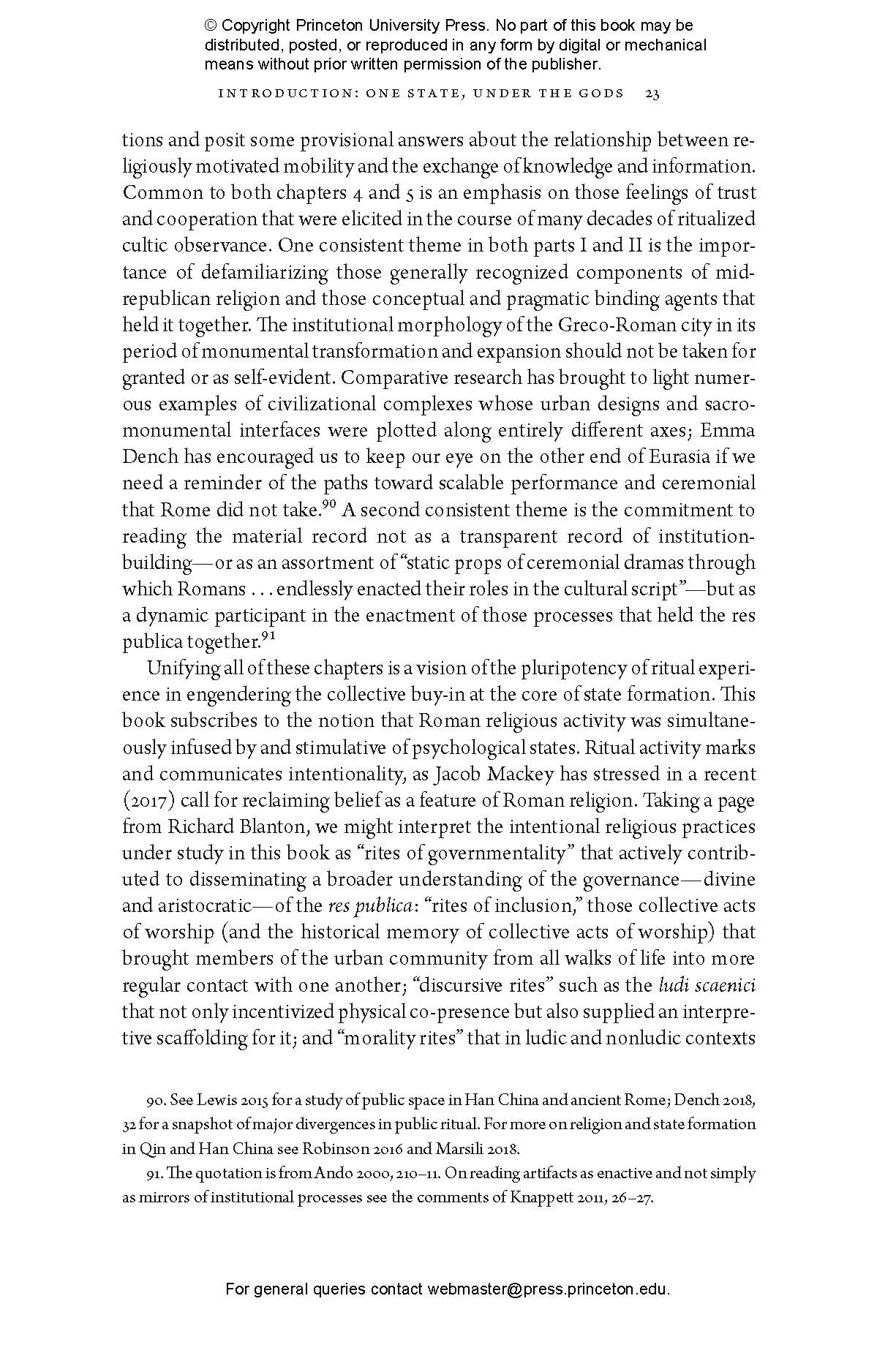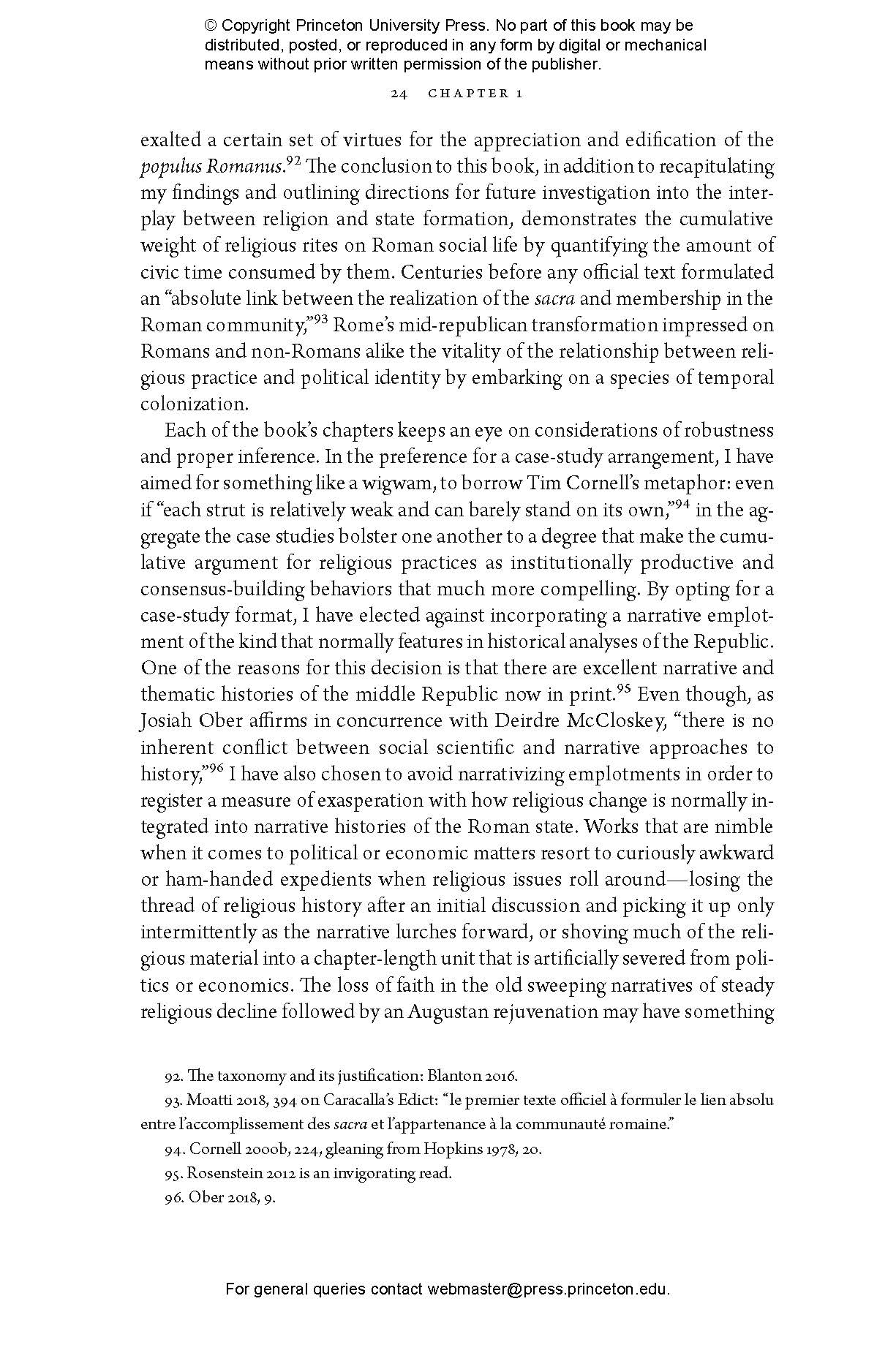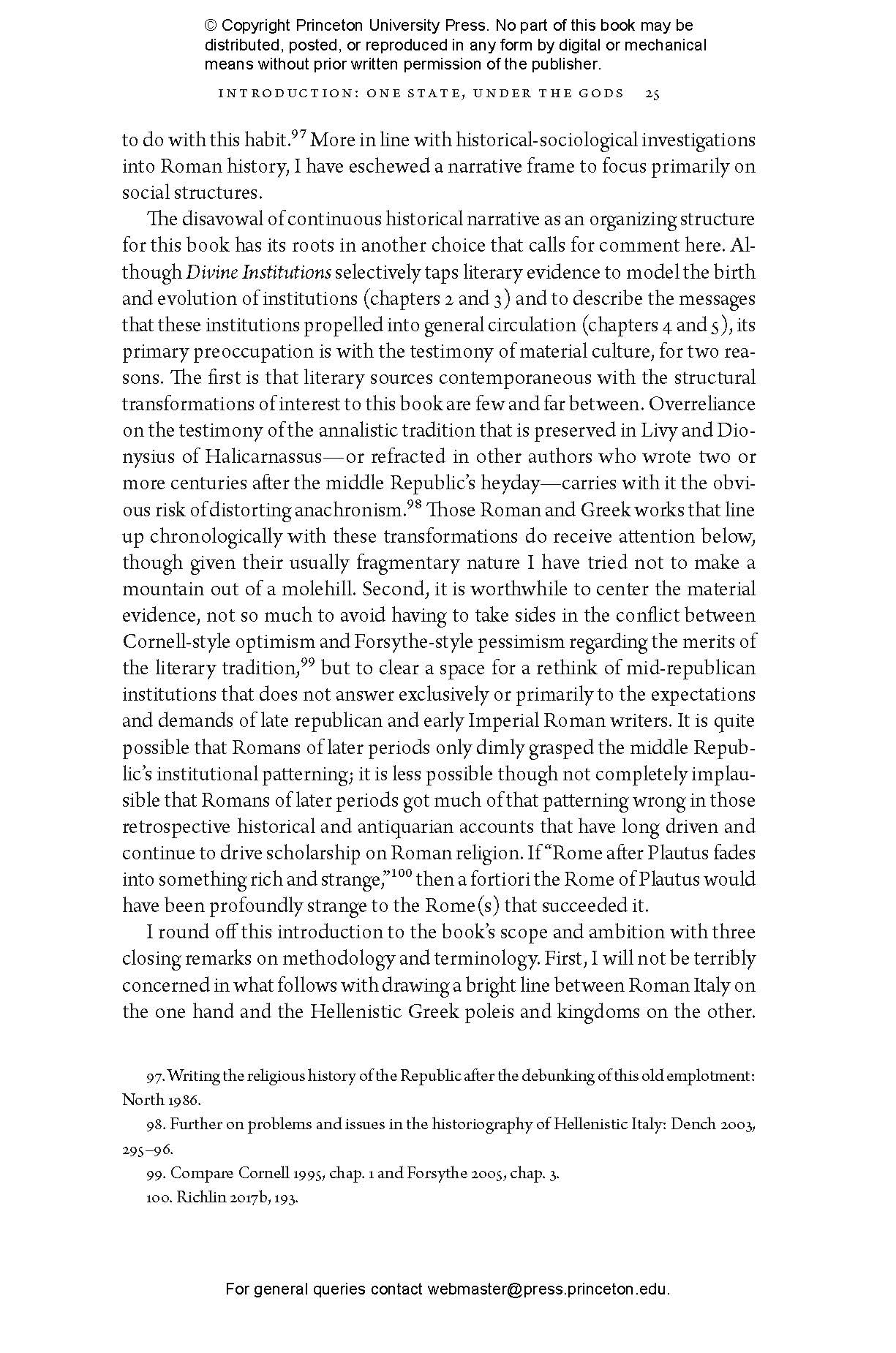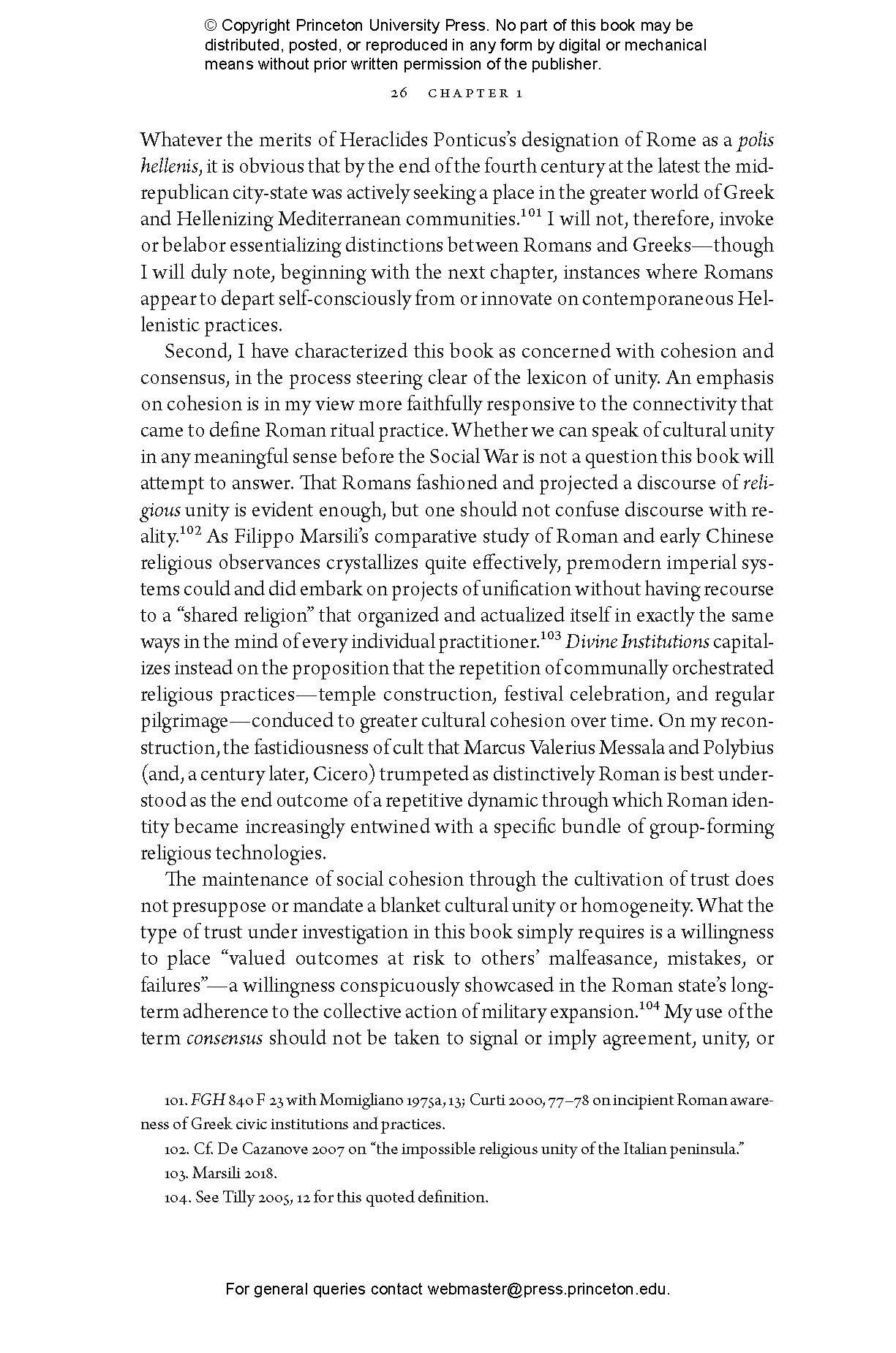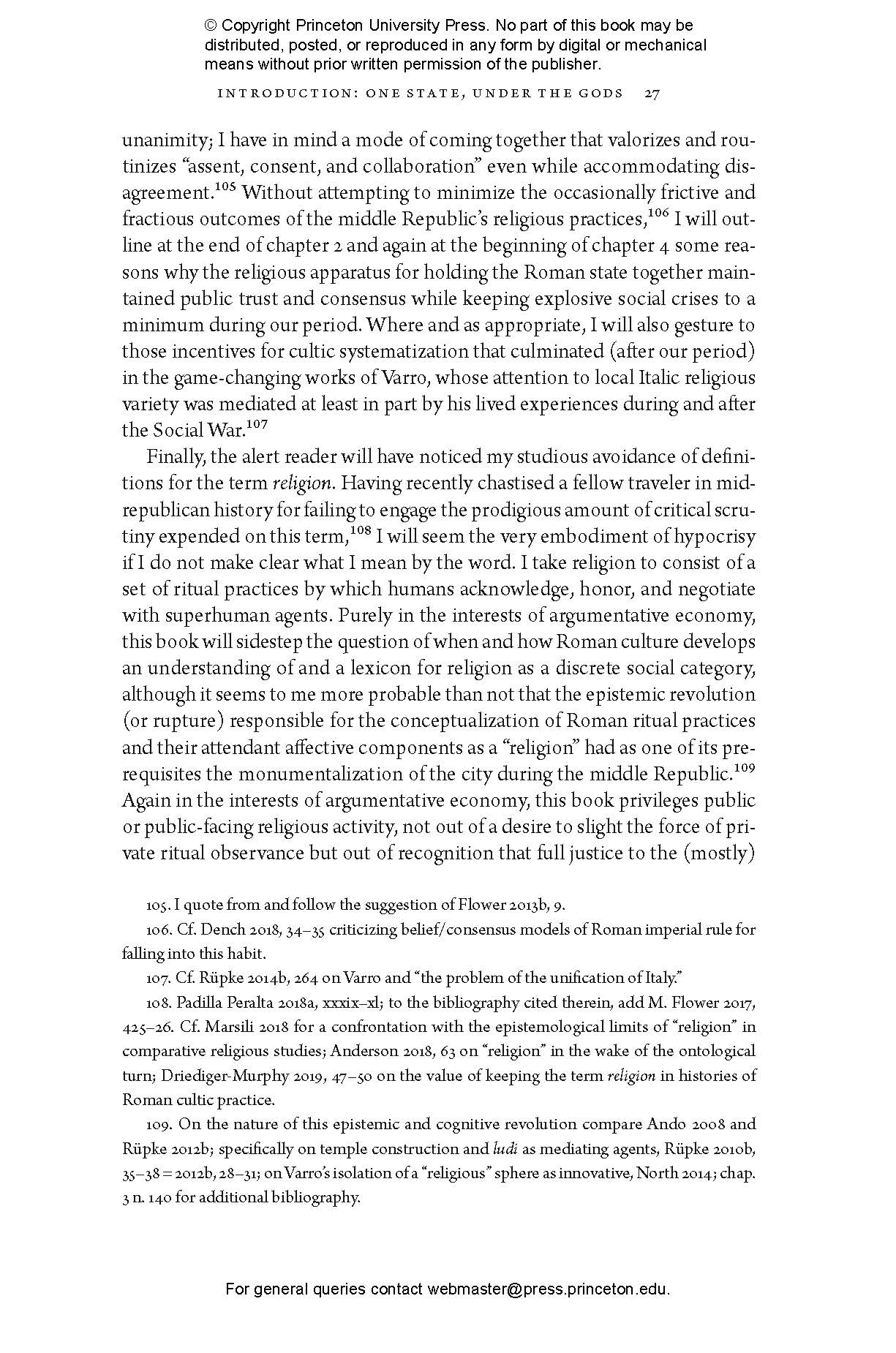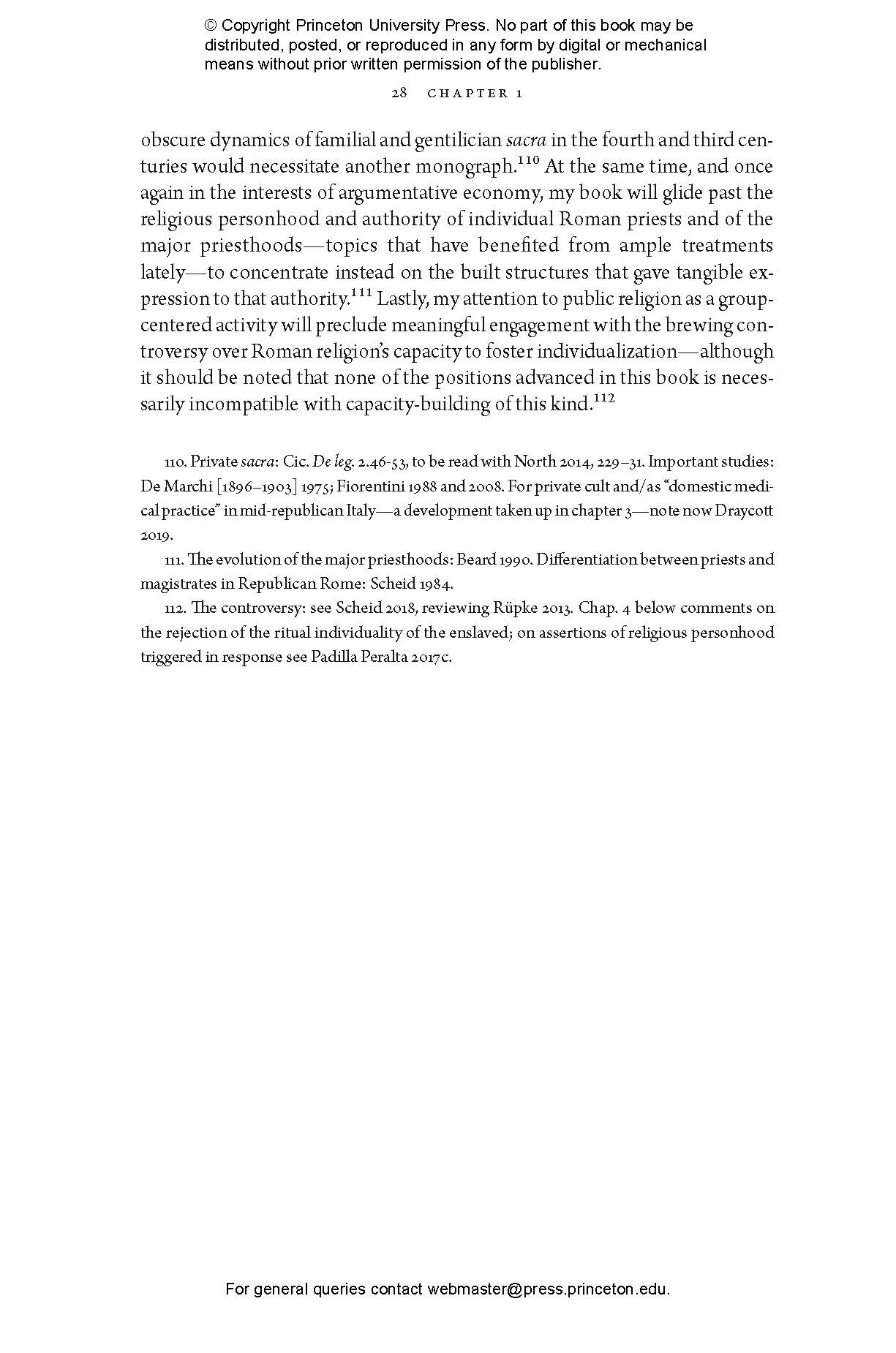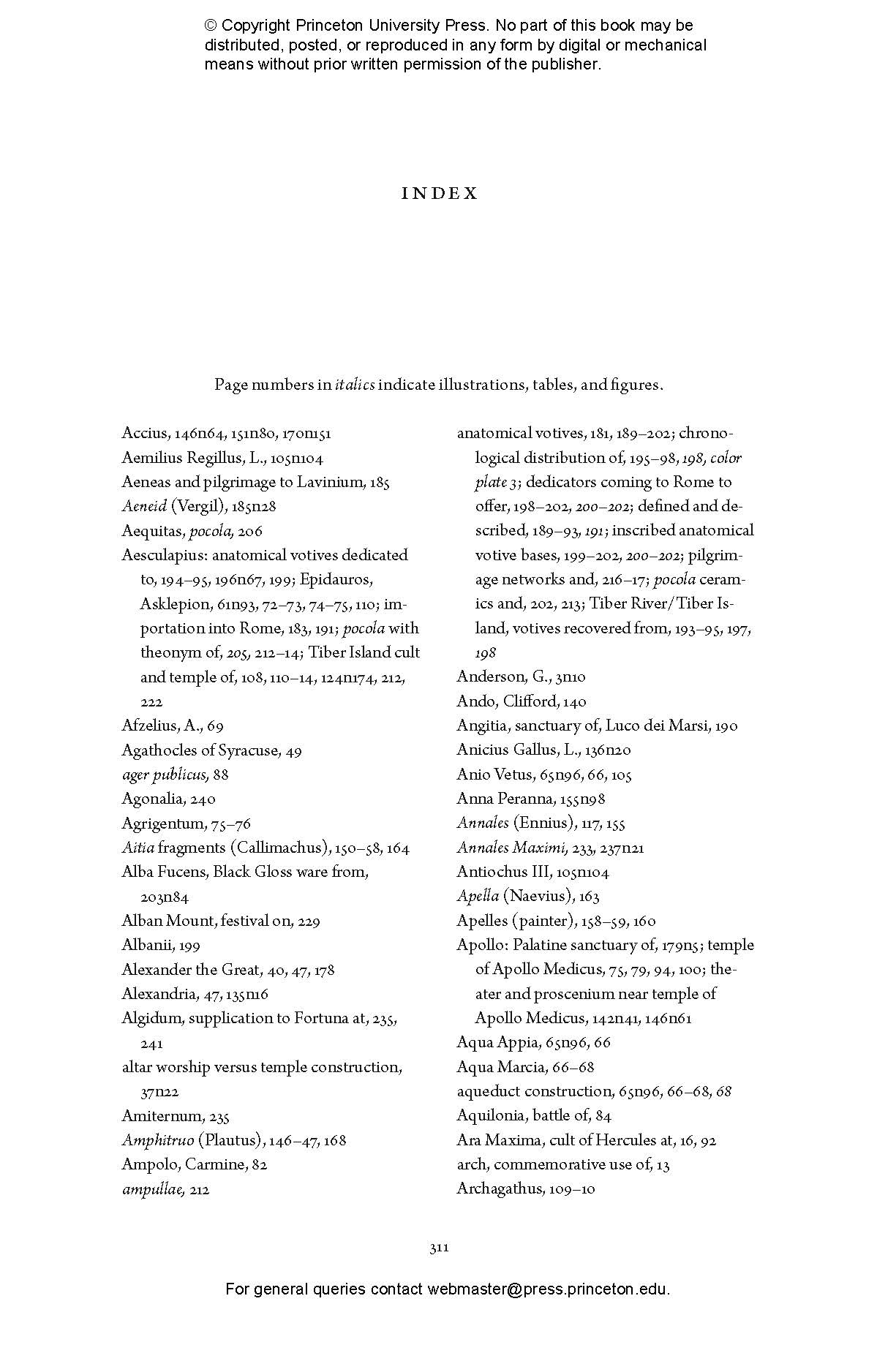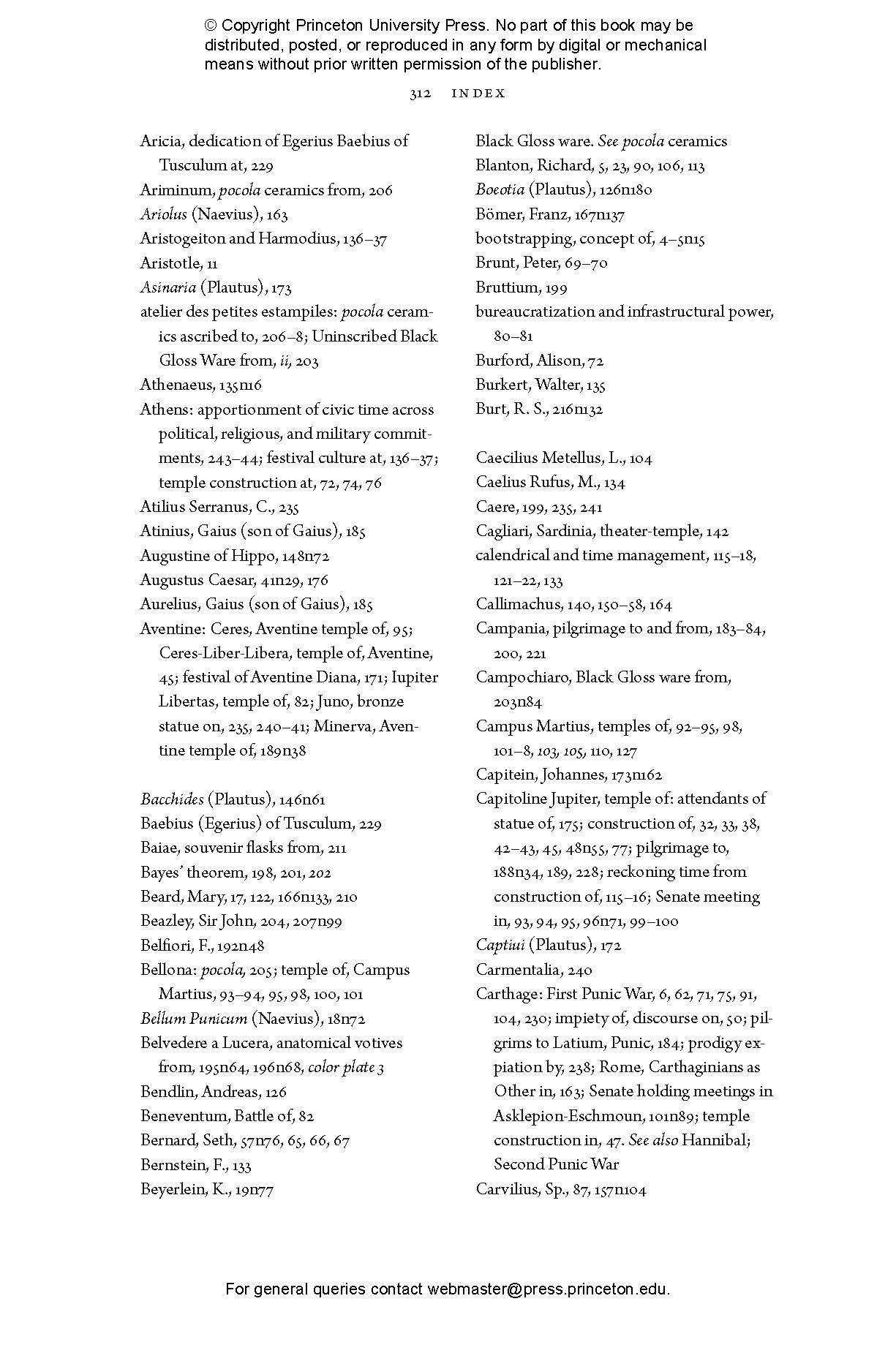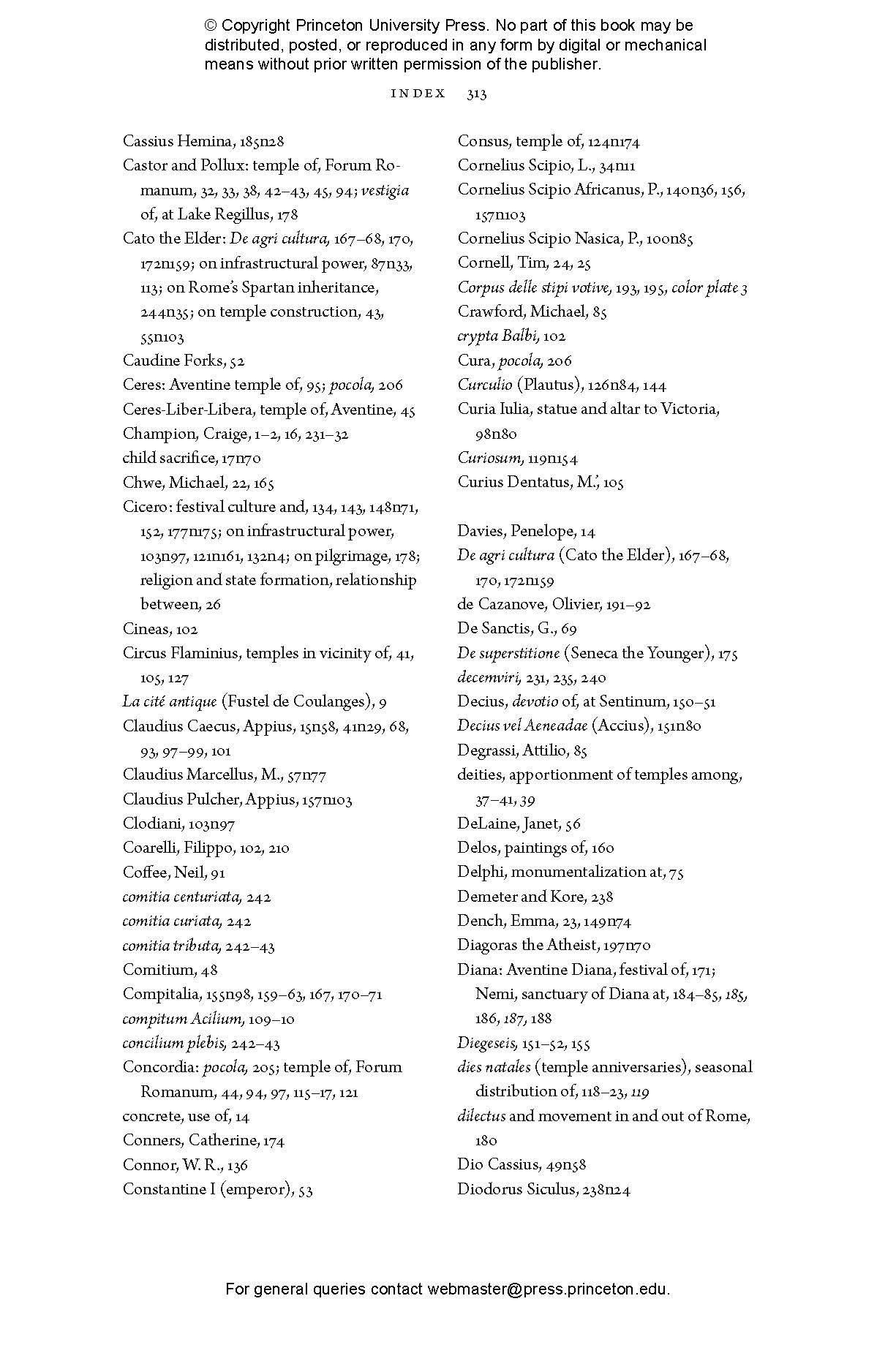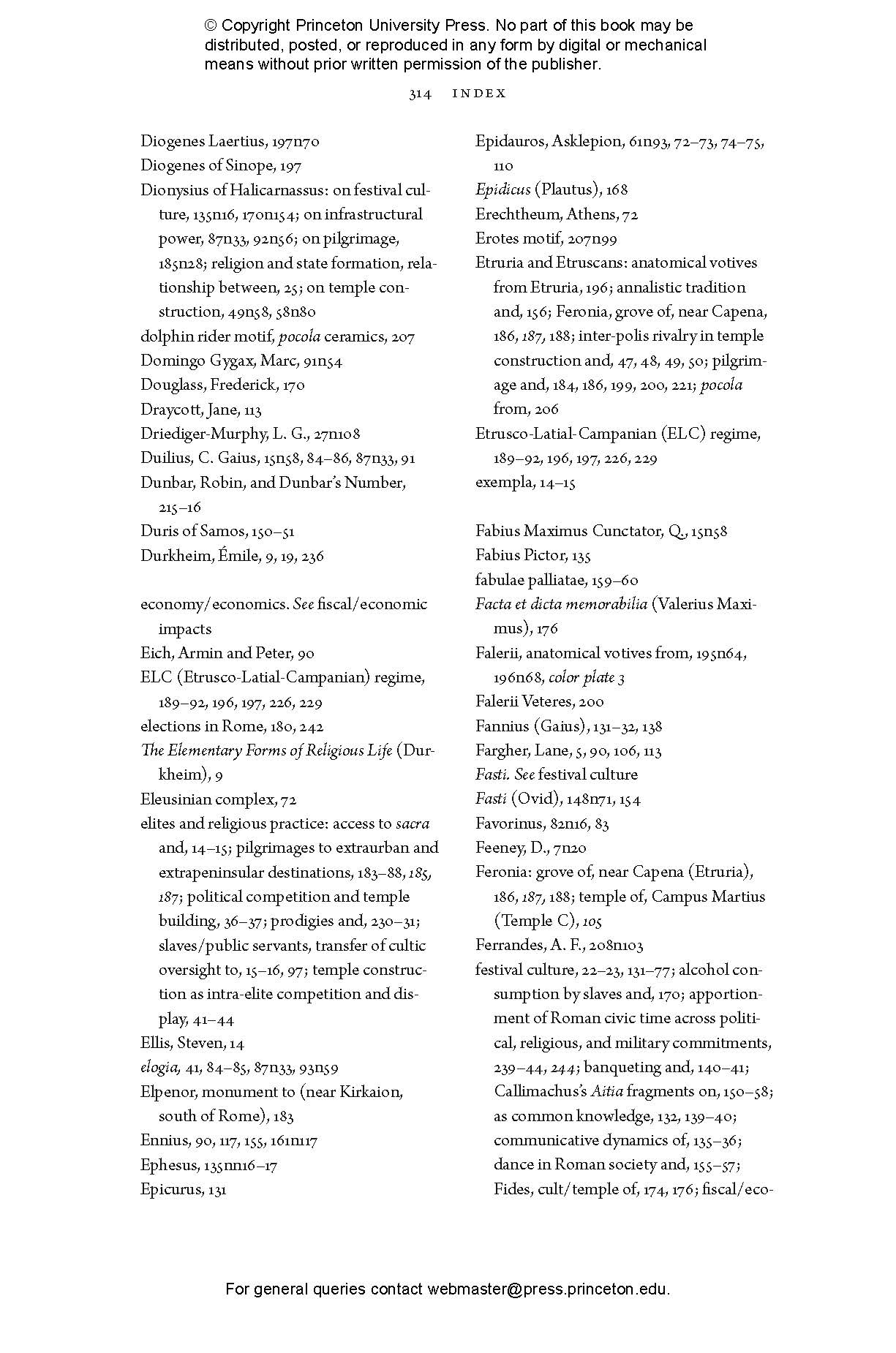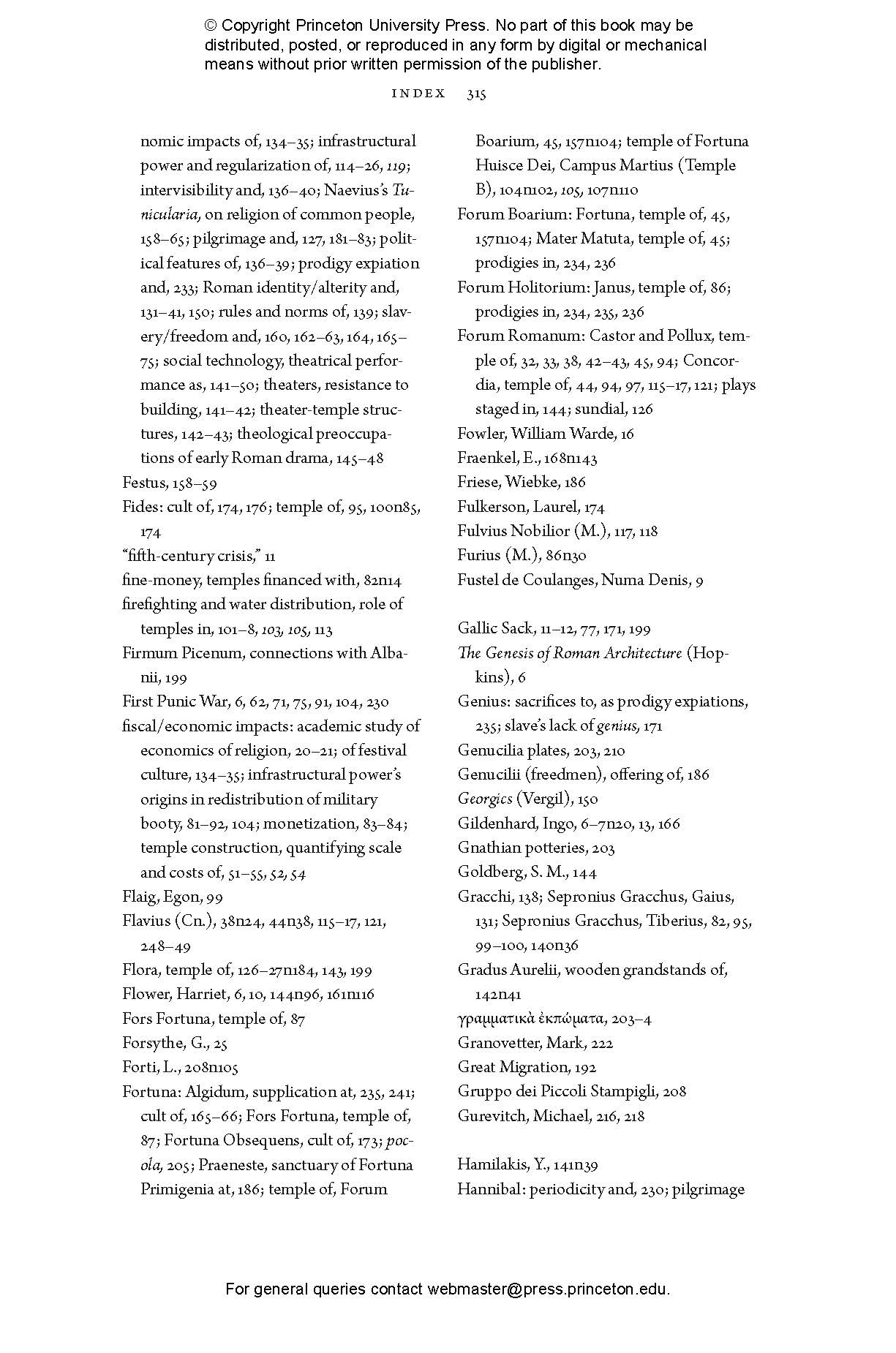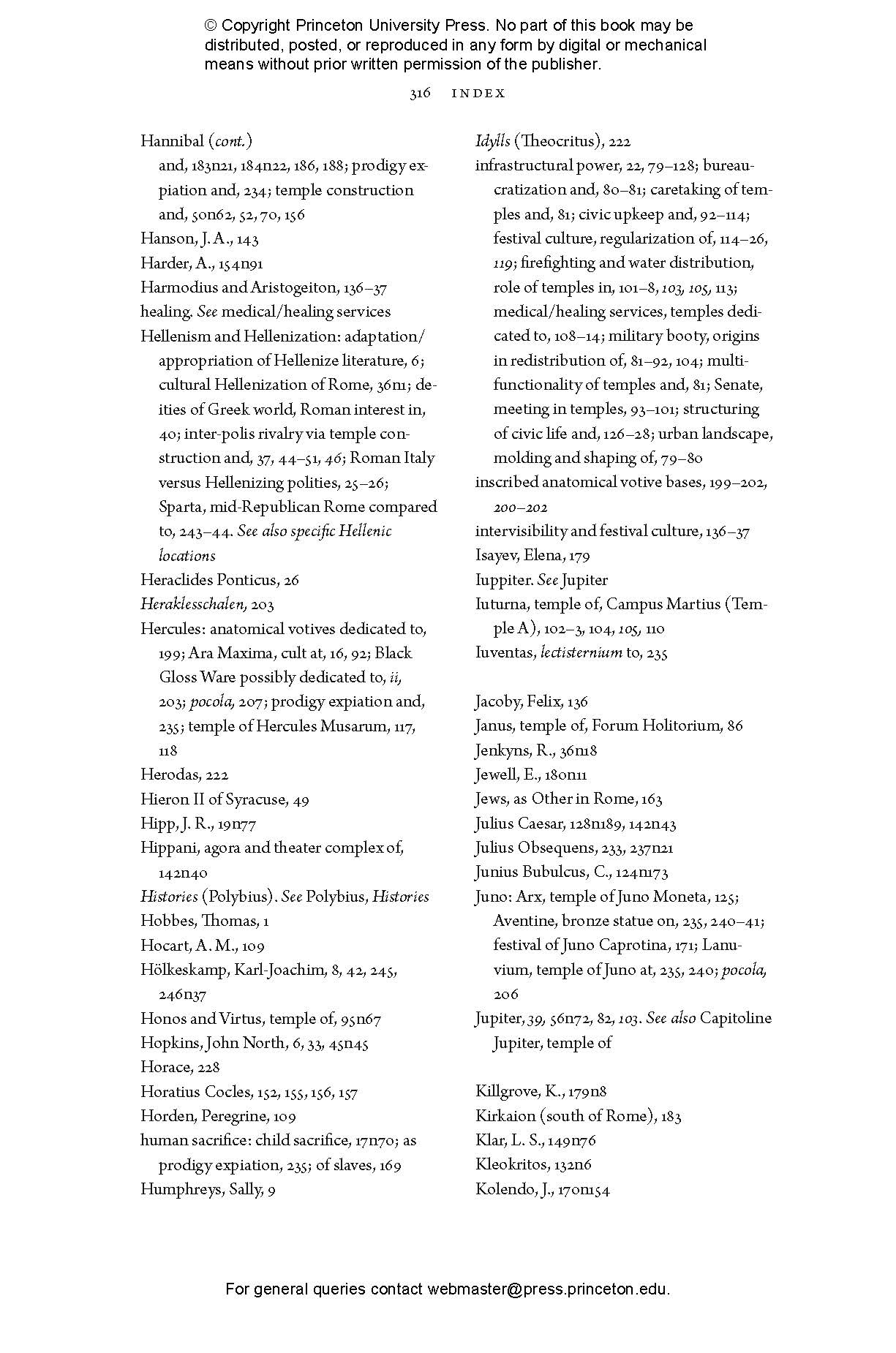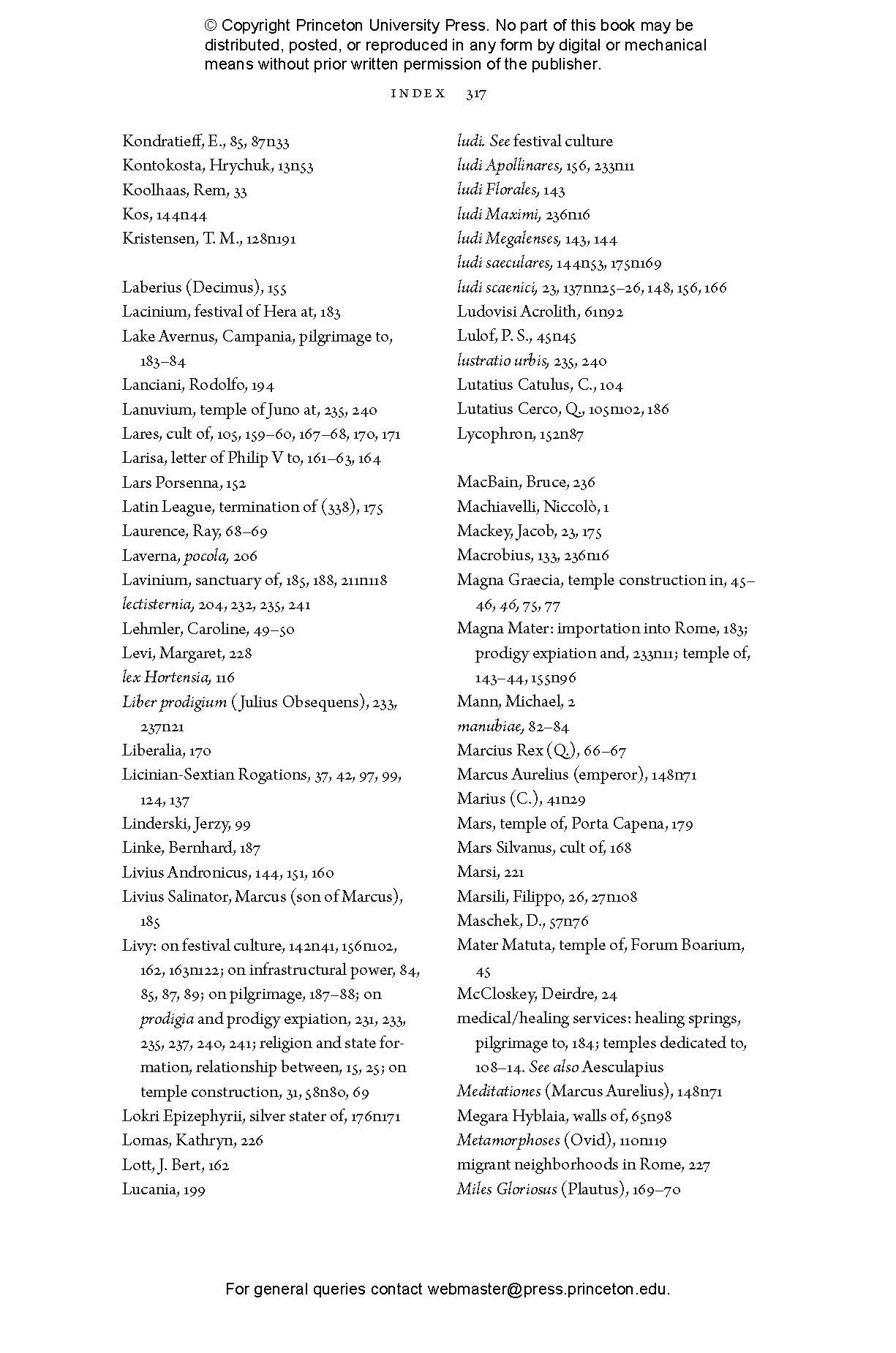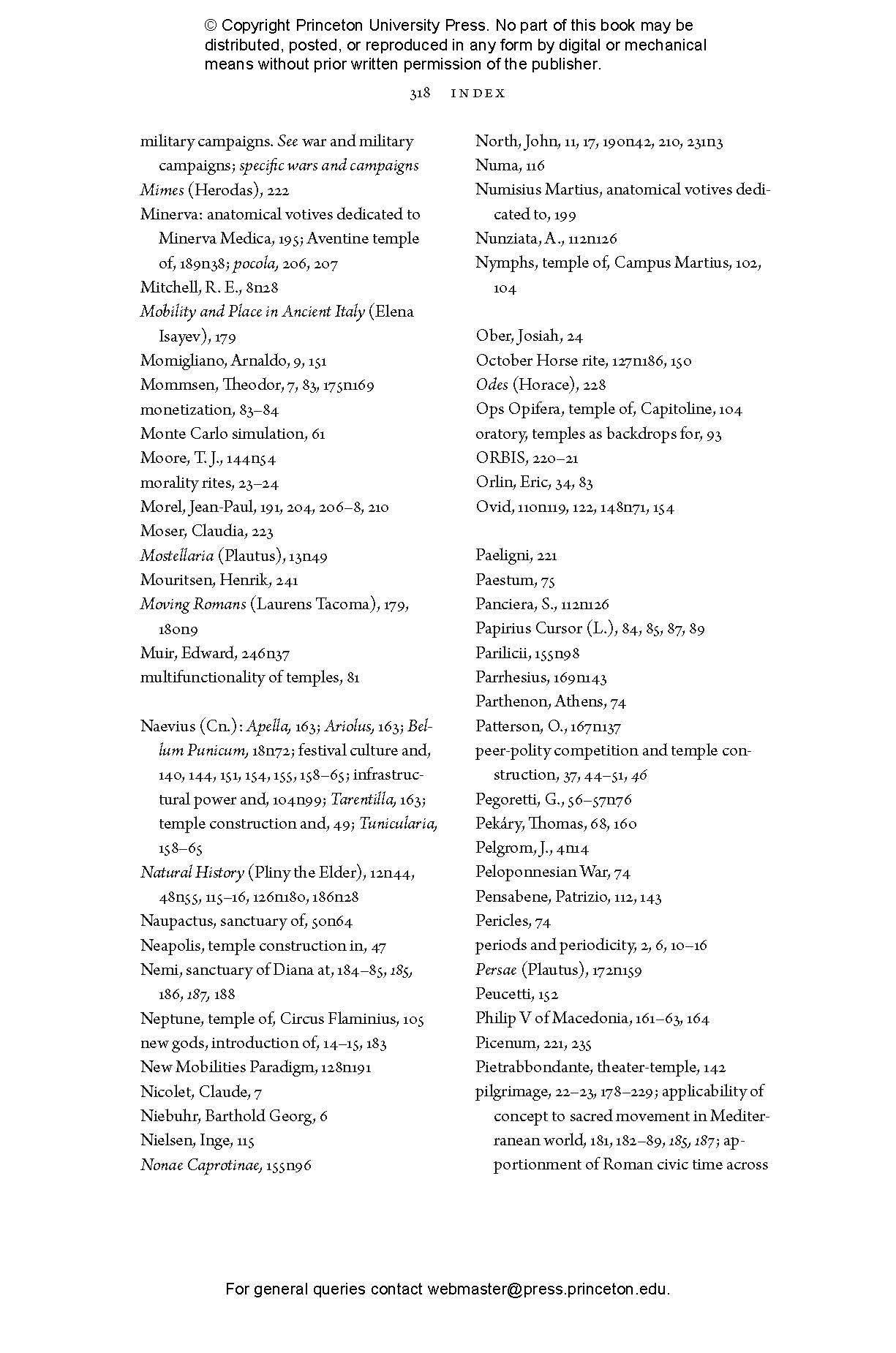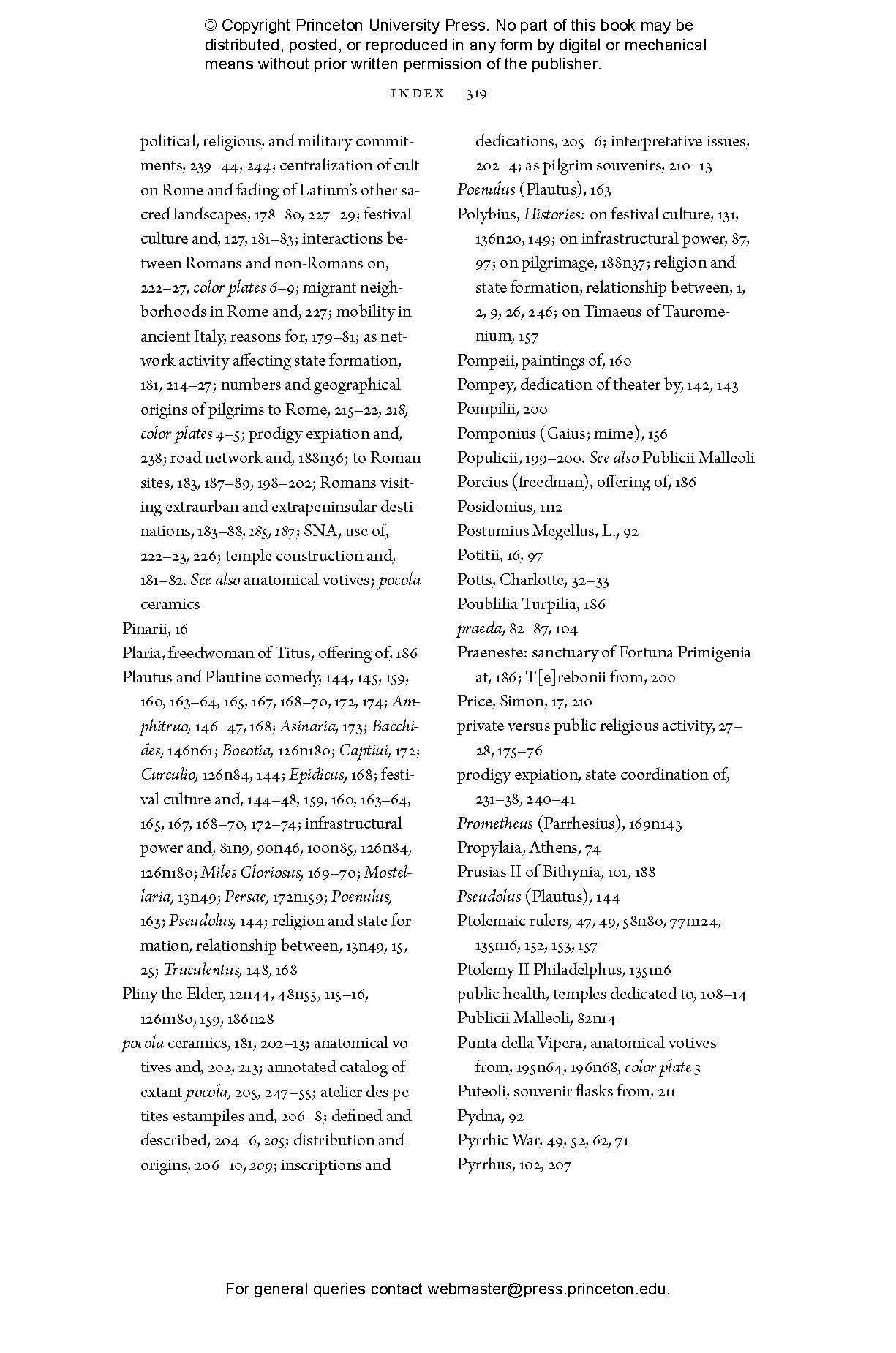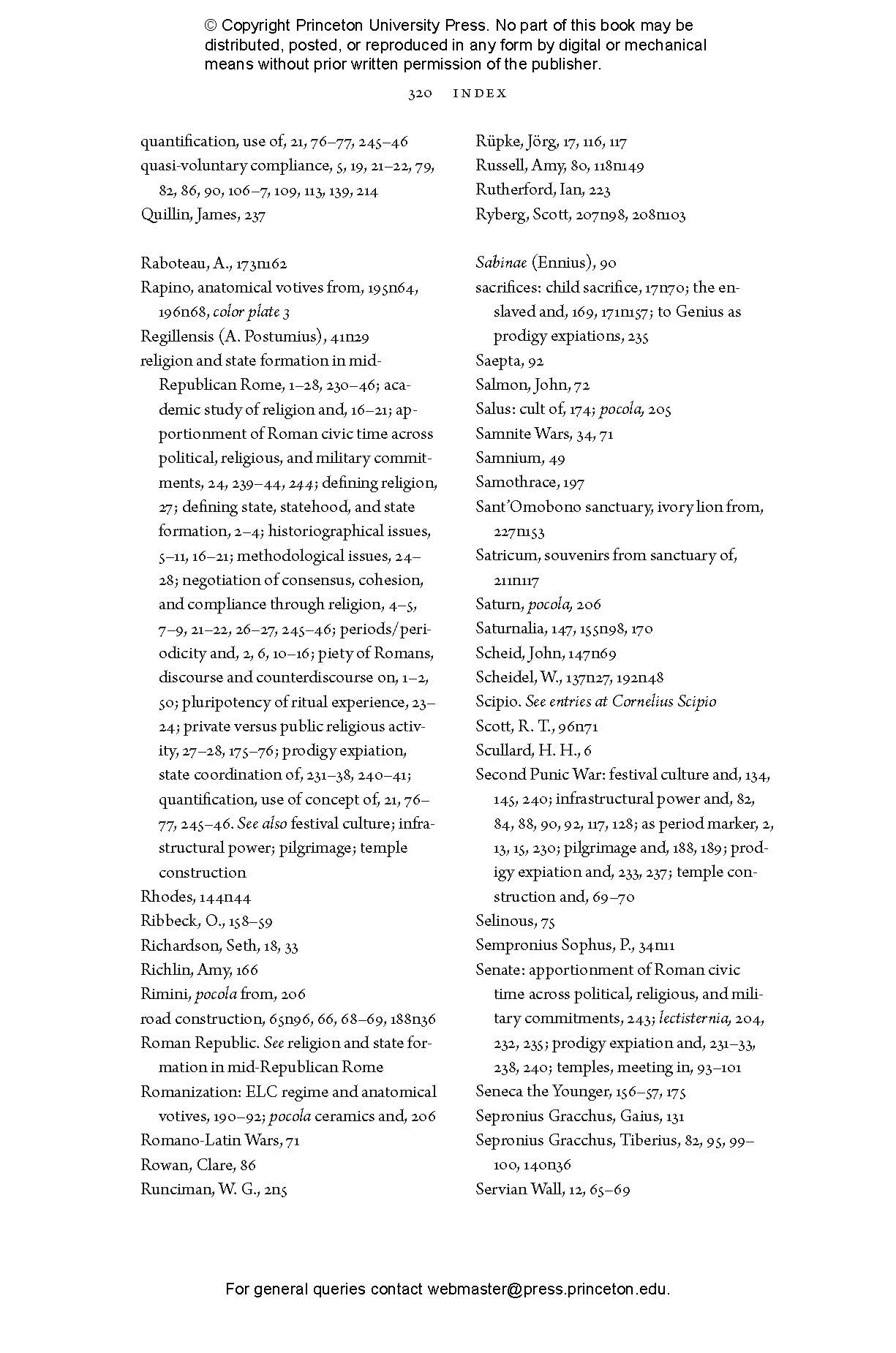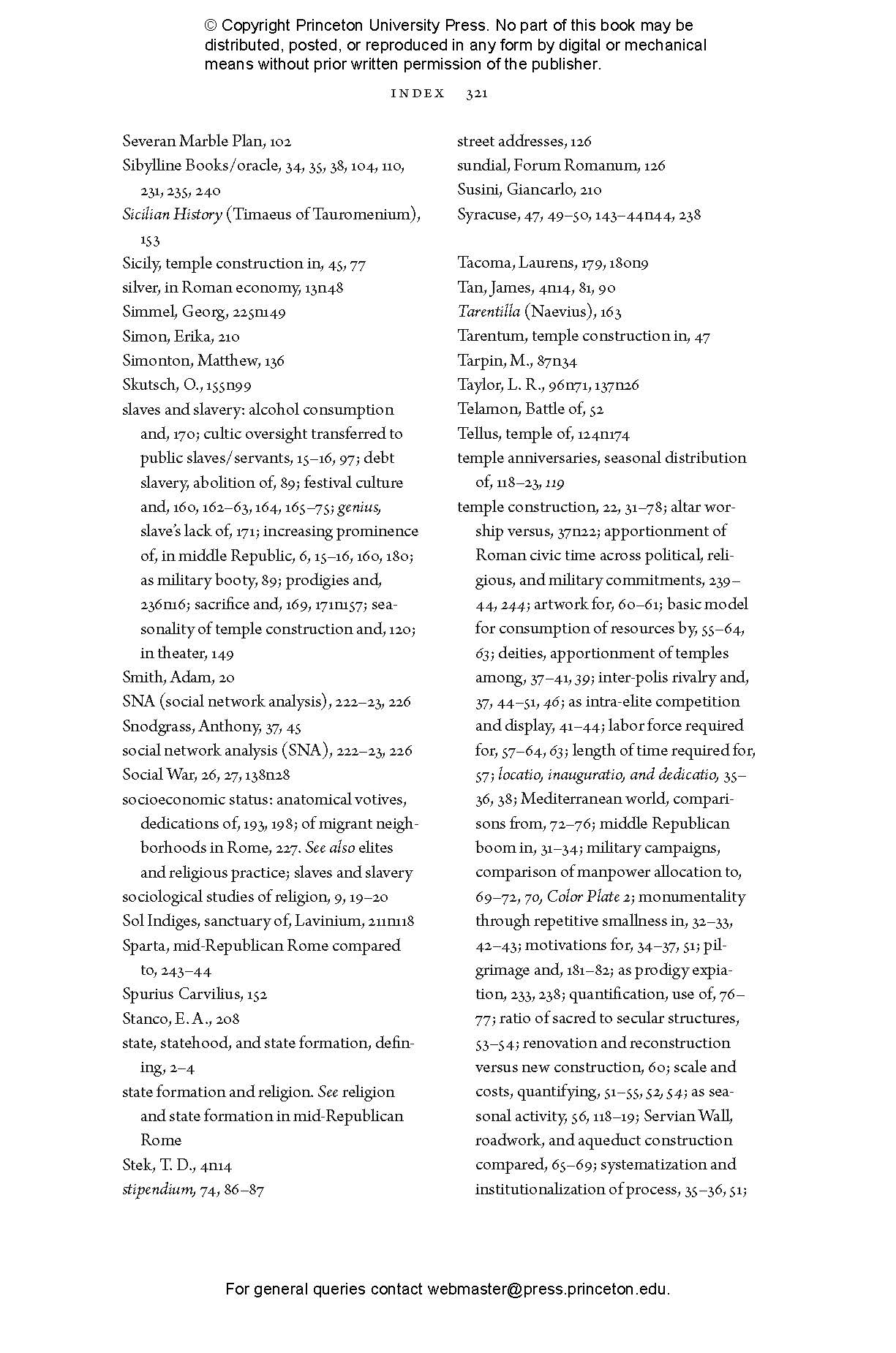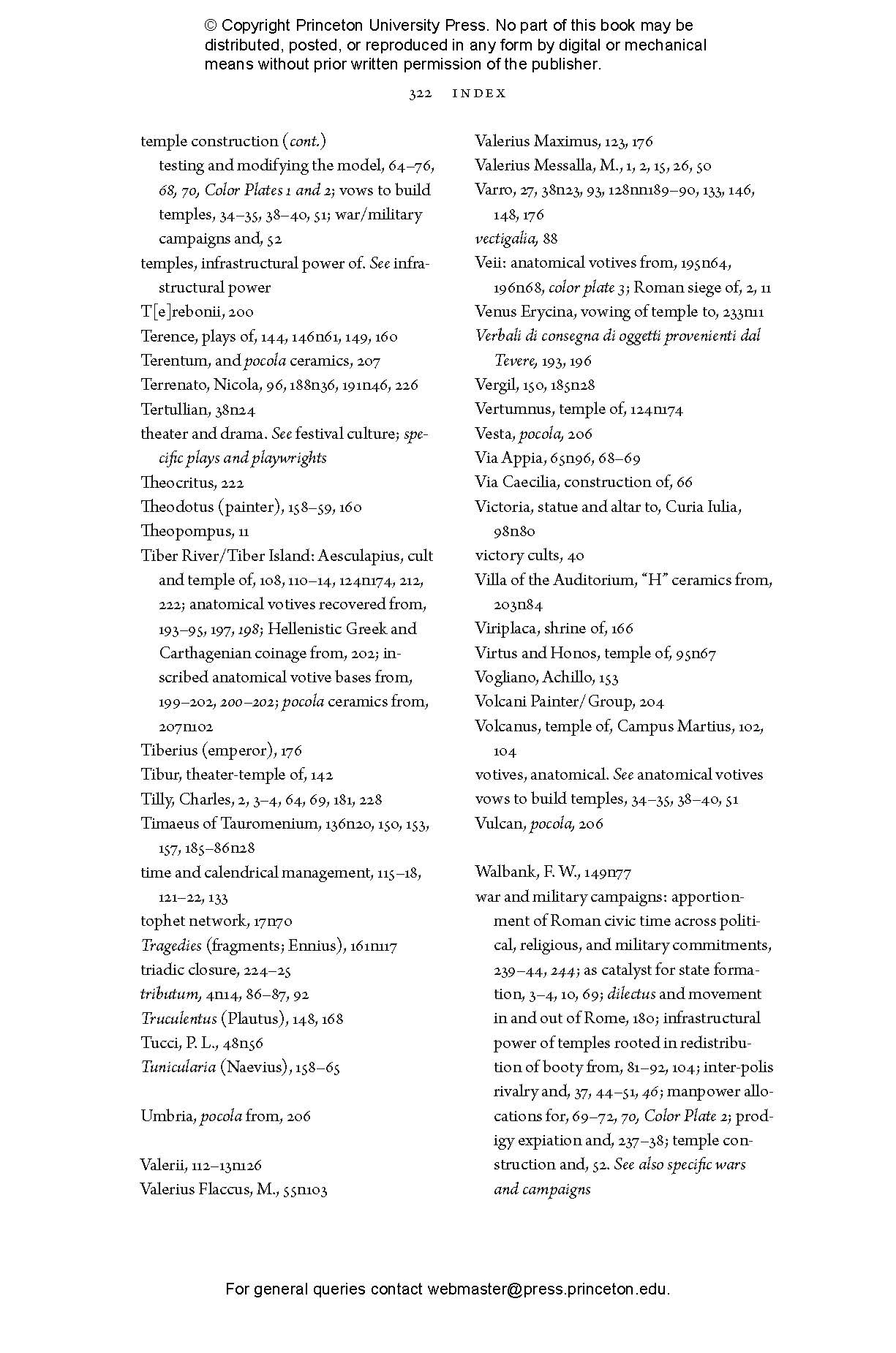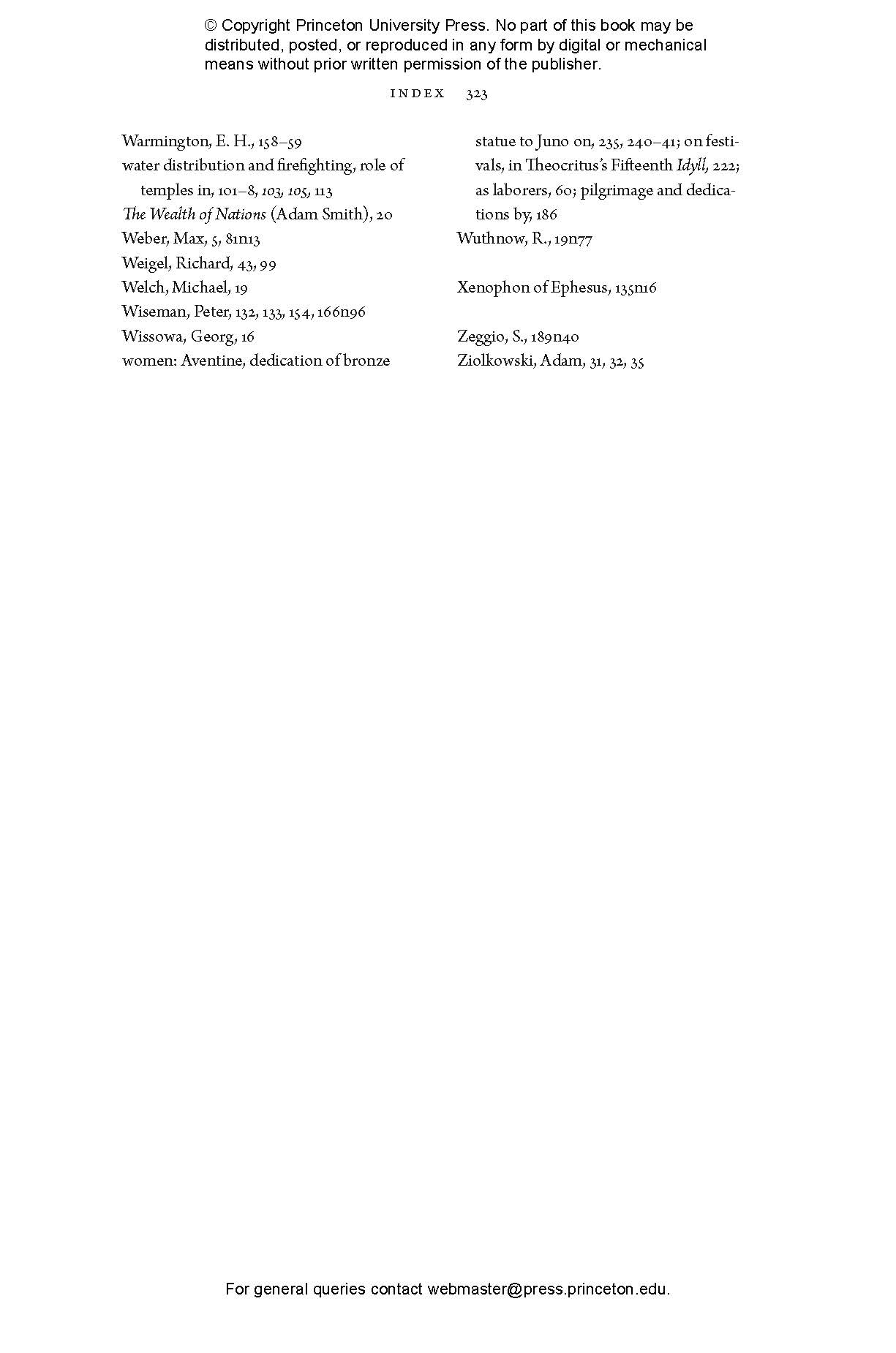Divine Institutions: Religions and Community in the Middle Roman Republic
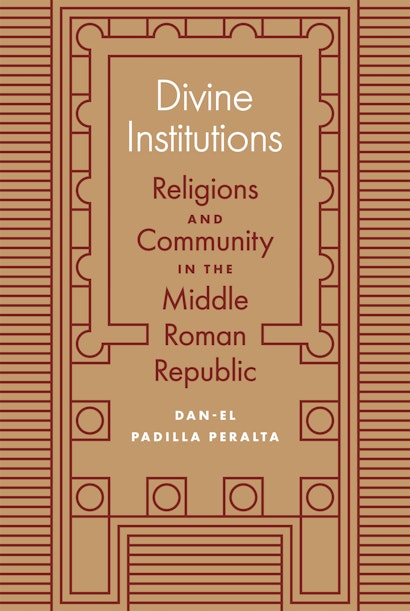

Hardcover
Paperback
ebook (EPUB via app)
- Sale Price:
- $17.50/£15.00
- Price:
-
$35.00/£30.00 - ISBN:
- Published:
- Oct 13, 2020
- Copyright:
- 2020
- 9 color + 12 b/w illus.
50% off with code BLOOM50
ebook (PDF via app)
-
Audio and ebooks (EPUB and PDF) purchased from this site must be accessed on the 91Ő“…ę app. After purchasing, you will an receive email with instructions to access your purchase.
About audio and ebooks - Request Exam Copy
Many narrative histories of Rome’s transformation from an Italian city-state to a Mediterranean superpower focus on political and military conflicts as the primary agents of social change. Divine Institutions places religion at the heart of this transformation, showing how religious ritual and observance held the Roman Republic together during the fourth and third centuries BCE, a period when the Roman state significantly expanded and diversified.
Blending the latest advances in archaeology with innovative sociological and anthropological methods, Dan-el Padilla Peralta takes readers from the capitulation of Rome’s neighbor and adversary Veii in 398 BCE to the end of the Second Punic War in 202 BCE, demonstrating how the Roman state was redefined through the twin pillars of temple construction and pilgrimage. He sheds light on how the proliferation of temples together with changes to Rome’s calendar created new civic rhythms of festival celebration, and how pilgrimage to the city surged with the increase in the number and frequency of festivals attached to Rome’s temple structures.
Divine Institutions overcomes many of the evidentiary hurdles that for so long have impeded research into this pivotal period in Rome’s history. This book reconstructs the scale and social costs of these religious practices and reveals how religious observance emerged as an indispensable strategy for bringing Romans of many different backgrounds to the center, both physically and symbolically.
Awards and Recognition
- Finalist for the Best First Book in the History of Religions, American Academy of Religion
- Winner of the CAMWS First Book Award, Classical Association of the Middle West and South
- Winner of the Herbert Baxter Adams Prize, American Historical Association
